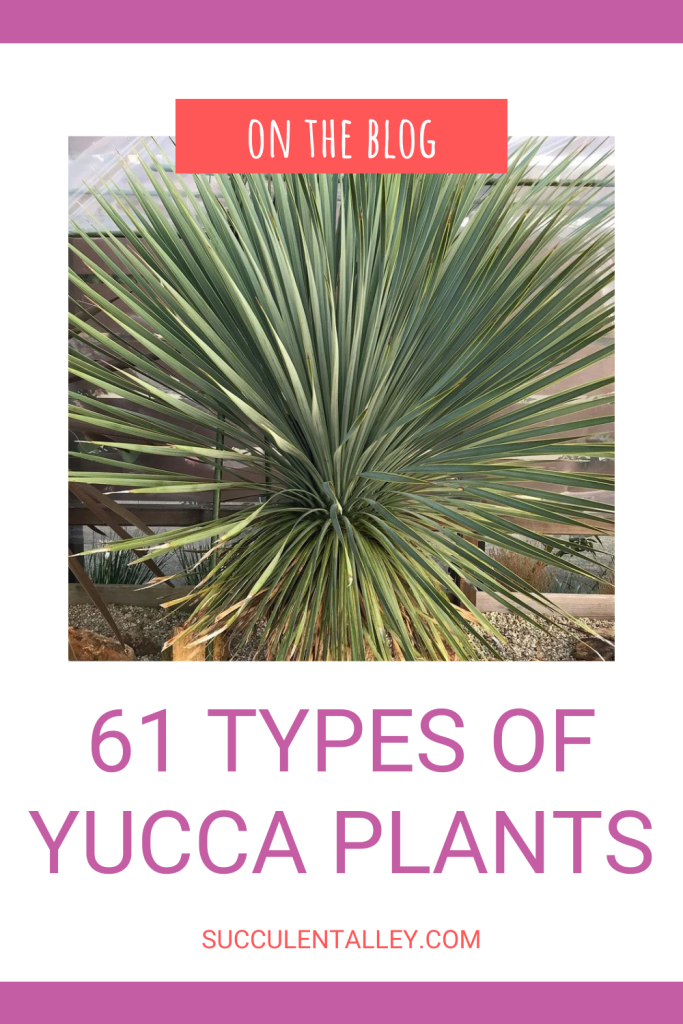61 Yucca Varieties You Won’t Believe Actually Exist!
Get ready to be blown away by one of nature’s most striking and eye-catching plant families – the yuccas! These spiky superhero succulents are about to rock your world with their crazy cool looks and amazing survival skills. From miniature munchkins to towering tree-like titans, yuccas come in all shapes and sizes, guaranteed to make your jaw drop.
We’ve dug up 61 totally unique and incredible yucca varieties that will have you questioning if they’re even from this planet. Are you ready to be amazed? Let’s dive into the wonderful world of yuccas!
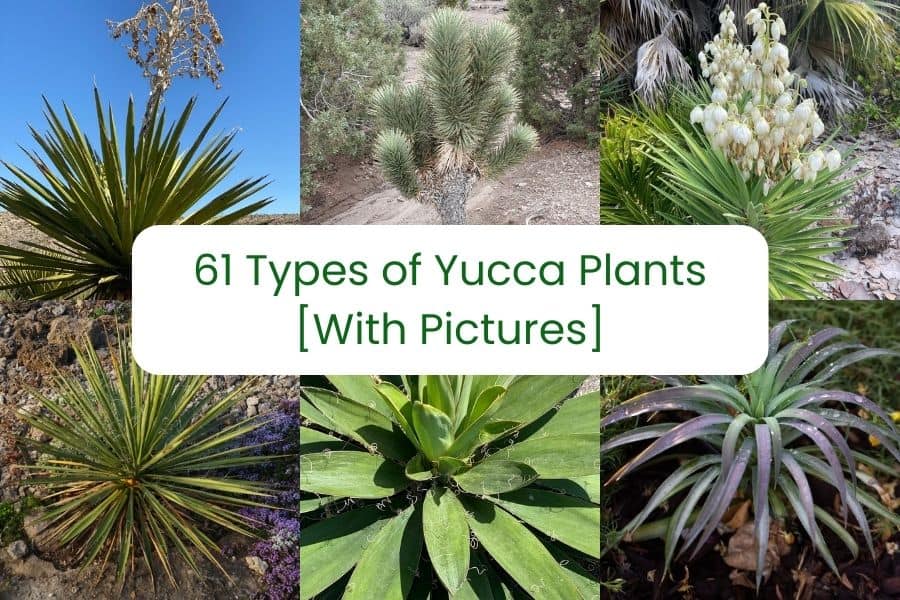
Contents
- 1 Types of Yucca Plants
- 1.1 Yucca aloifolia (Aloe Yucca)
- 1.2 Yucca angustissima (Narrowleaf Yucca)
- 1.3 Yucca angustissima var. avia (Bird Yucca)
- 1.4 Yucca angustissima var. kanabensis (Kanab Yucca)
- 1.5 Yucca angustissima var. toftiae (Toft’s Yucca)
- 1.6 Yucca arkansana (Arkansas Yucca)
- 1.7 Yucca baccata (Banana Yucca)
- 1.8 Yucca baccata var. brevifolia (Arizona Yucca)
- 1.9 Yucca baileyi (Navajo Yucca)
- 1.10 Yucca brevifolia(Joshua Tree)
- 1.11 Yucca brevifolia var. jaegeriana (Eastern Joshua Tree)
- 1.12 Yucca campestris (Plains Yucca)
- 1.13 Yucca capensis (Cape Region Yucca)
- 1.14 Yucca carnerosana (Giant Spanish-Dagger)
- 1.15 Yucca carrii
- 1.16 Yucca cernua (Nodding Yucca)
- 1.17 Yucca coahuilensis (Coahuila Yucca)
- 1.18 Yucca constricta (Buckley’s Yucca)
- 1.19 Yucca decipiens (Palm Yucca)
- 1.20 Yucca desmetiana
- 1.21 Yucca elata (Soaptree Yucca)
- 1.22 Yucca elata var. verdiensis (Verdi Yucca)
- 1.23 Yucca endlichiana (Creeping Dwarf Yucca)
- 1.24 Yucca faxoniana (Faxon Yucca)
- 1.25 Yucca filamentosa (Common Yucca)
- 1.26 Yucca filamentosa f. variegata (Variegated Common Yucca)
- 1.27 Yucca filamentosa subs. concava
- 1.28 Yucca filifera (Tree Yucca)
- 1.29 Yucca flaccida (Weak-leaf Yucca)
- 1.30 Yucca gigantea (Spineless Yucca)
- 1.31 Yucca glauca (Great Plains Yucca)
- 1.32 Yucca glauca subs. stricta
- 1.33 Yucca gloriosa (Moundlily Yucca)
- 1.34 Yucca gloriosa var. tristis
- 1.35 Yucca harrimaniae (Dwarf Yucca)
- 1.36 Yucca harrimaniae var. gilbertiana
- 1.37 Yucca intermedia (Intermediate Yucca)
- 1.38 Yucca jaliscensis (Jalisco Yucca)
- 1.39 Yucca lacandonica (Tropical Yucca)
- 1.40 Yucca linearifolia (Linear-leaf Yucca)
- 1.41 Yucca louisianensis (Gulf Coast Yucca)
- 1.42 Yucca madrensis (Mountain Yucca)
- 1.43 Yucca mixtecana (Thin-stemmed Oaxaca-Puebla Yucca)
- 1.44 Yucca necopina (Glen Rose Yucca)
- 1.45 Yucca neomexicana (New Mexican Blue Yucca)
- 1.46 Yucca pallida (Pale Yucca)
- 1.47 Yucca periculosa (Izote Yucca)
- 1.48 Yucca potosina (Potosí Palm Yucca)
- 1.49 Yucca queretaroensis (Queretaro Yucca)
- 1.50 Yucca recurvifolia (Curve-leaf Yucca)
- 1.51 Yucca reverchonii (San Angelo Yucca)
- 1.52 Yucca rigida (Rigid Blue Yucca)
- 1.53 Yucca rostrata (Beaked Yucca)
- 1.54 Yucca rupicola (Twisted-leaf Yucca)
- 1.55 Yucca schidigera (Mojave Yucca)
- 1.56 Yucca schottii (Schott’s Yucca)
- 1.57 Yucca thompsoniana (Thompson’s Yucca)
- 1.58 Yucca torreyi (Torrey’s Yucca)
- 1.59 Yucca treculeana (Spanish Dagger)
- 1.60 Yucca utahensis (Utah Yucca)
- 1.61 Yucca valida (Datilillo Yucca)
- 2 Care and Propagation for Yucca Varieties
Types of Yucca Plants
Yucca aloifolia (Aloe Yucca)
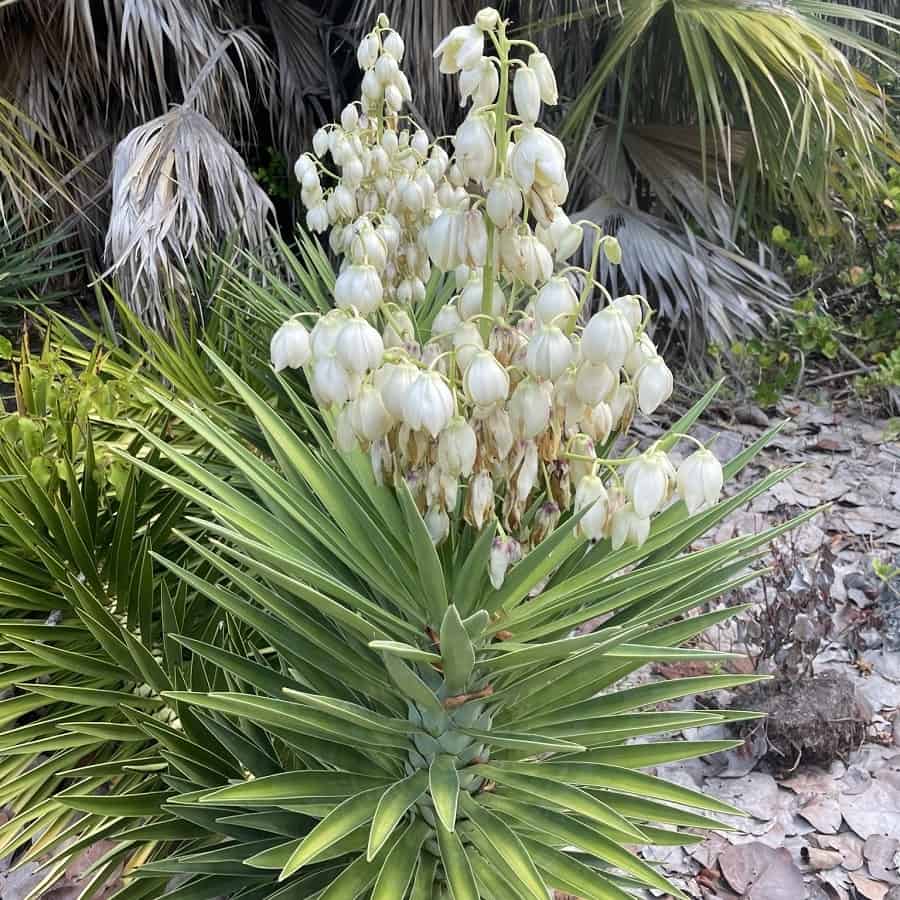
Reaching up to 28 feet tall, this beast is basically a tree donning a crazy crown of razor-sharp sword-like leaves. Stay back unless you want to be on the receiving end of those nasty needles! Despite its ferocious appearance, it produces stunning waxy white blooms tinged with purple.
Yucca angustissima (Narrowleaf Yucca)
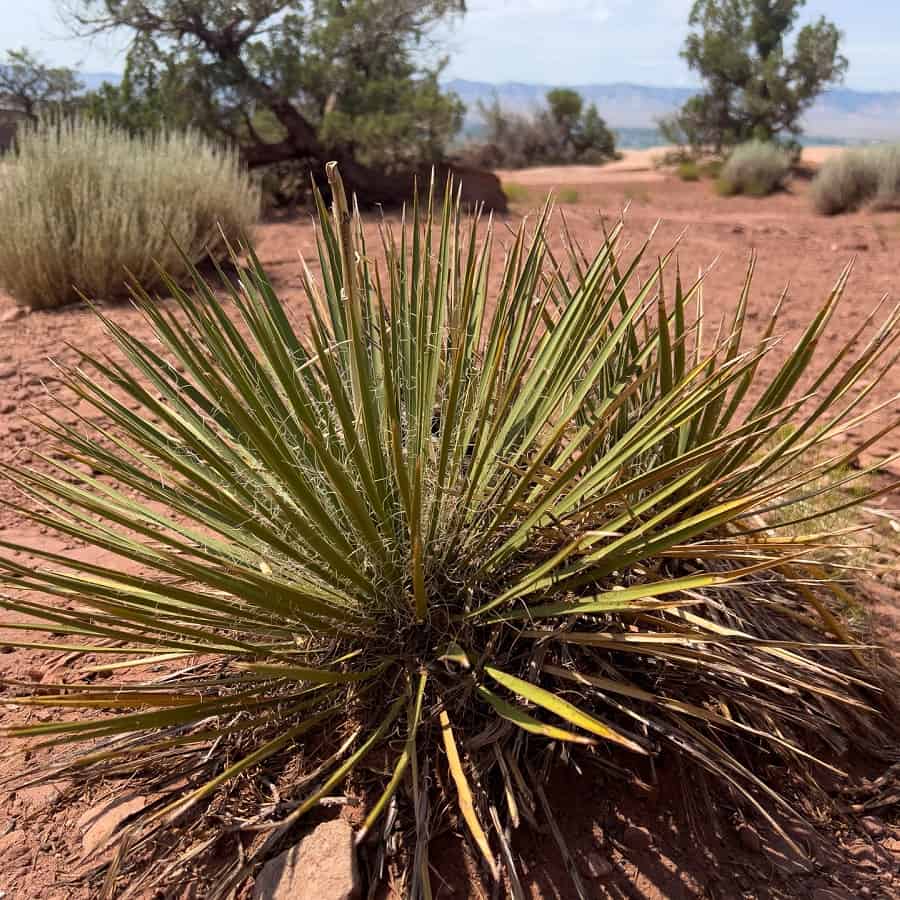
Don’t let the compact size fool you – this petite puncher packs a mean punch with its thin, spear-like leaves under 2 feet long. It looks like a feisty little cheerleader performing with pom-poms made of daggers!
Yucca angustissima var. avia (Bird Yucca)
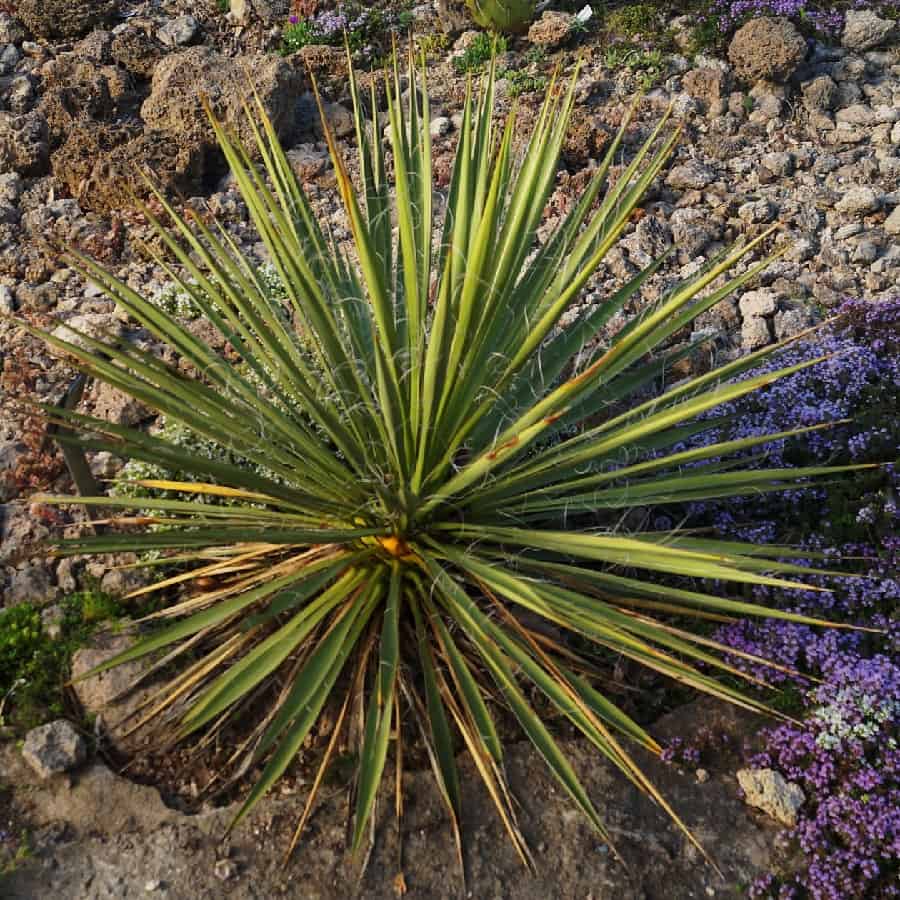
Yucca angustissima var. kanabensis (Kanab Yucca)
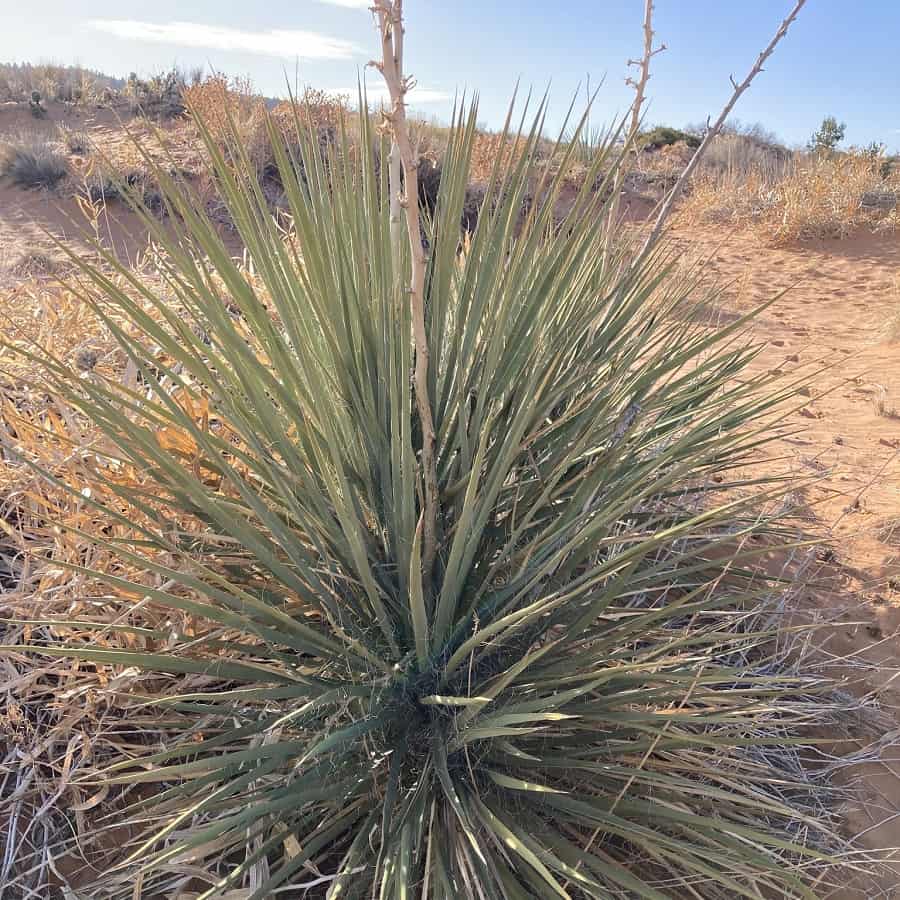
Yucca angustissima var. toftiae (Toft’s Yucca)
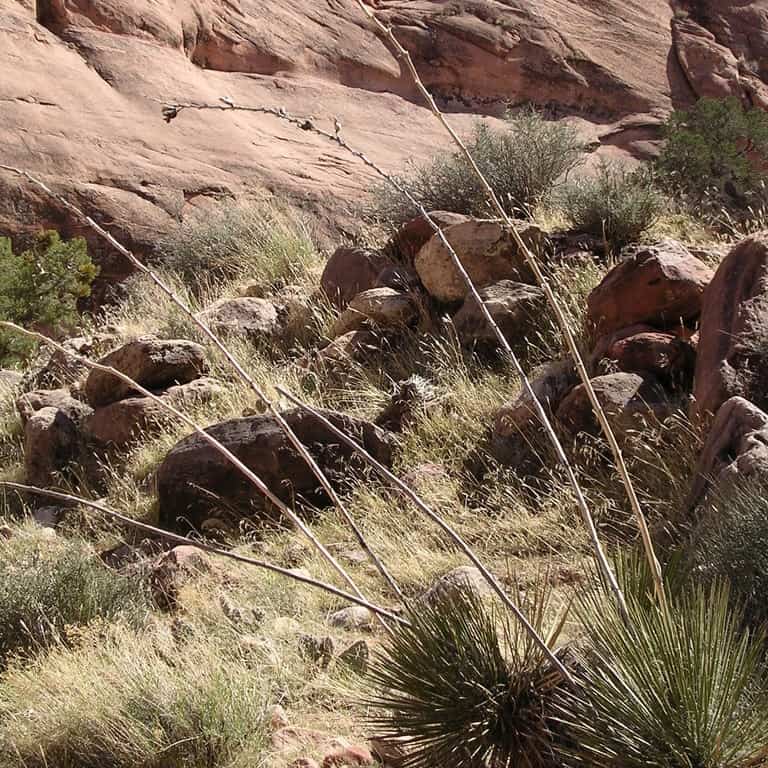
Yucca arkansana (Arkansas Yucca)
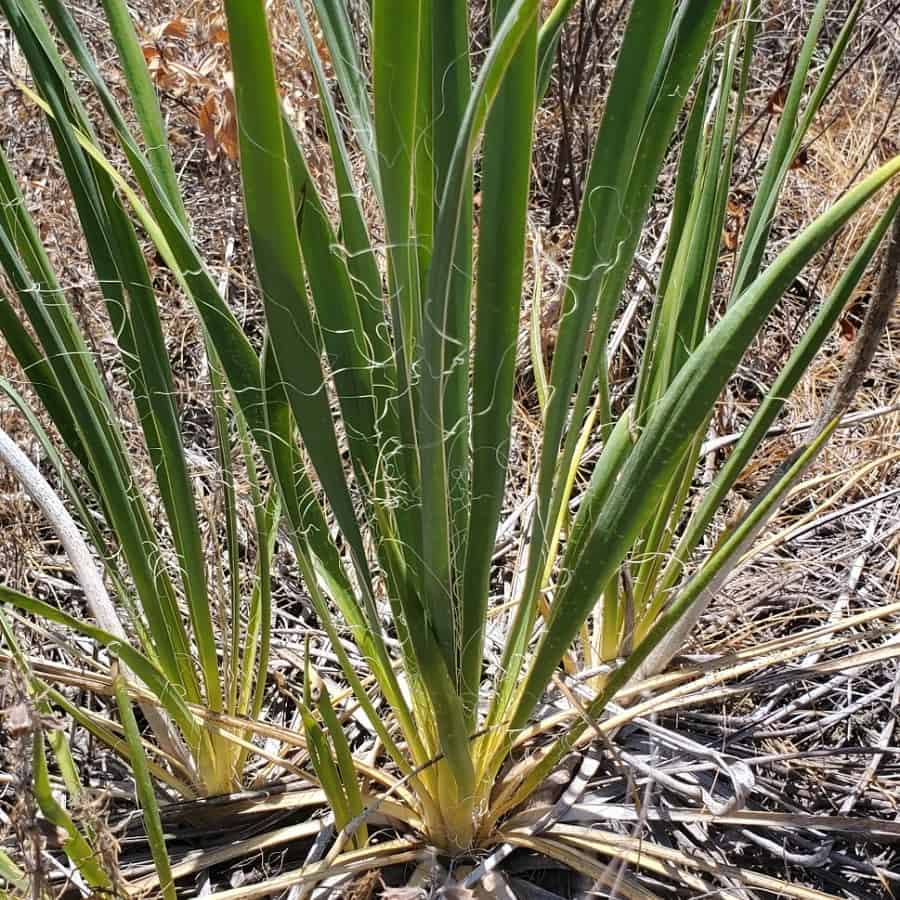
Yucca baccata (Banana Yucca)
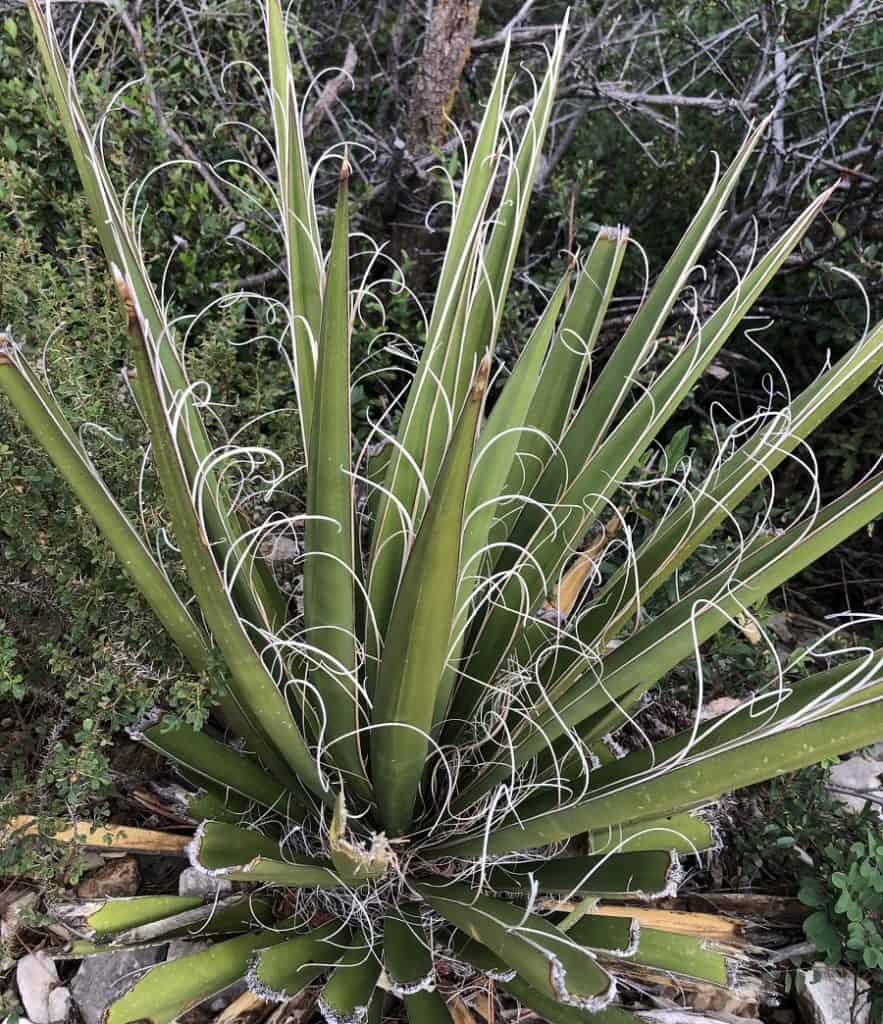
As quirky as its name, this one is all about the bizarre bulging “banana” fruits that emerge after its eye-catching coneflower display. The twisting blue-green leaves create an awesome sculptural vibe.
Yucca baccata var. brevifolia (Arizona Yucca)
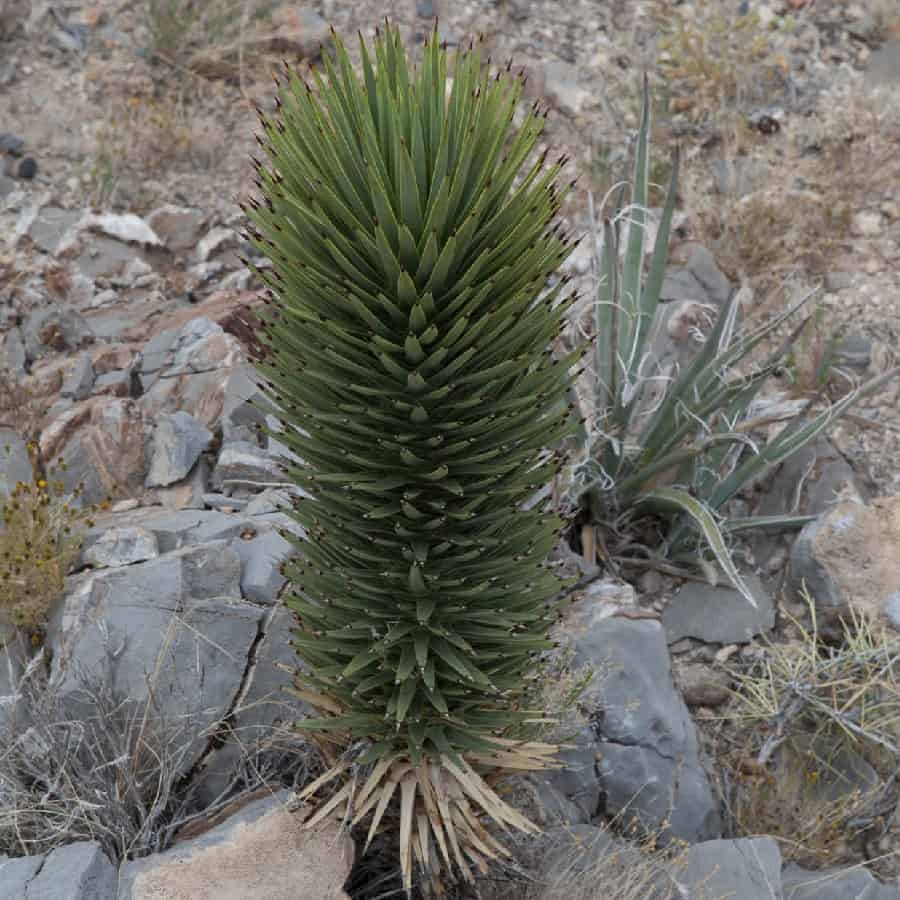
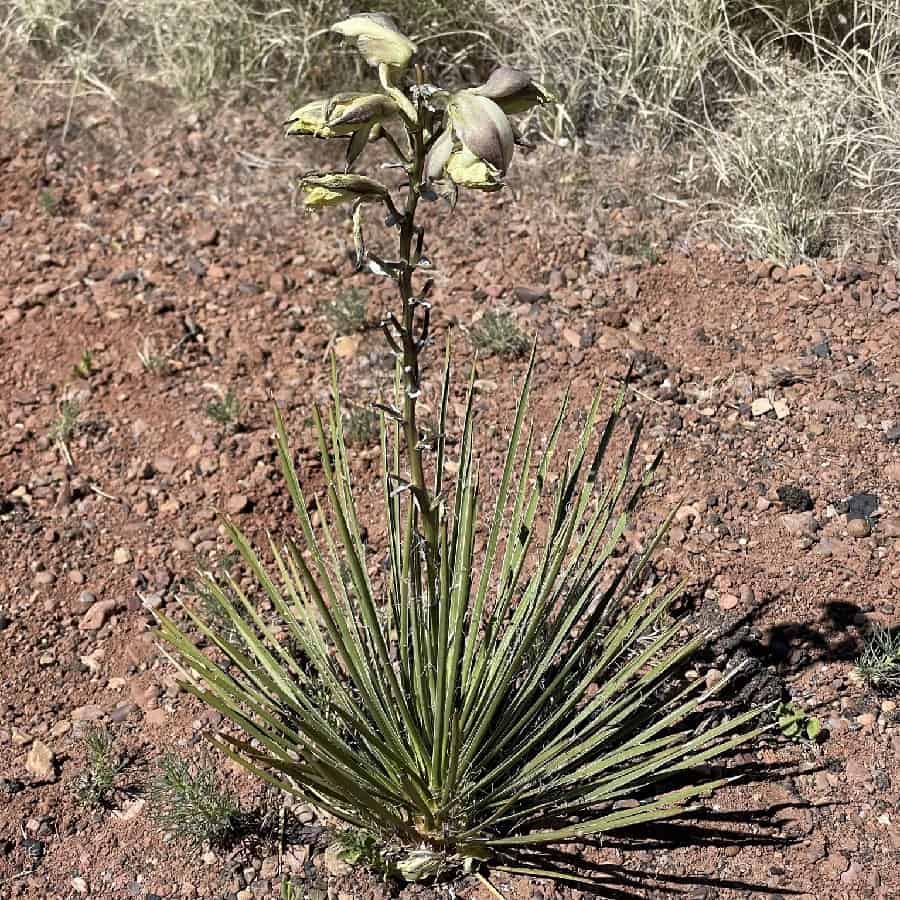
Yucca brevifolia(Joshua Tree)
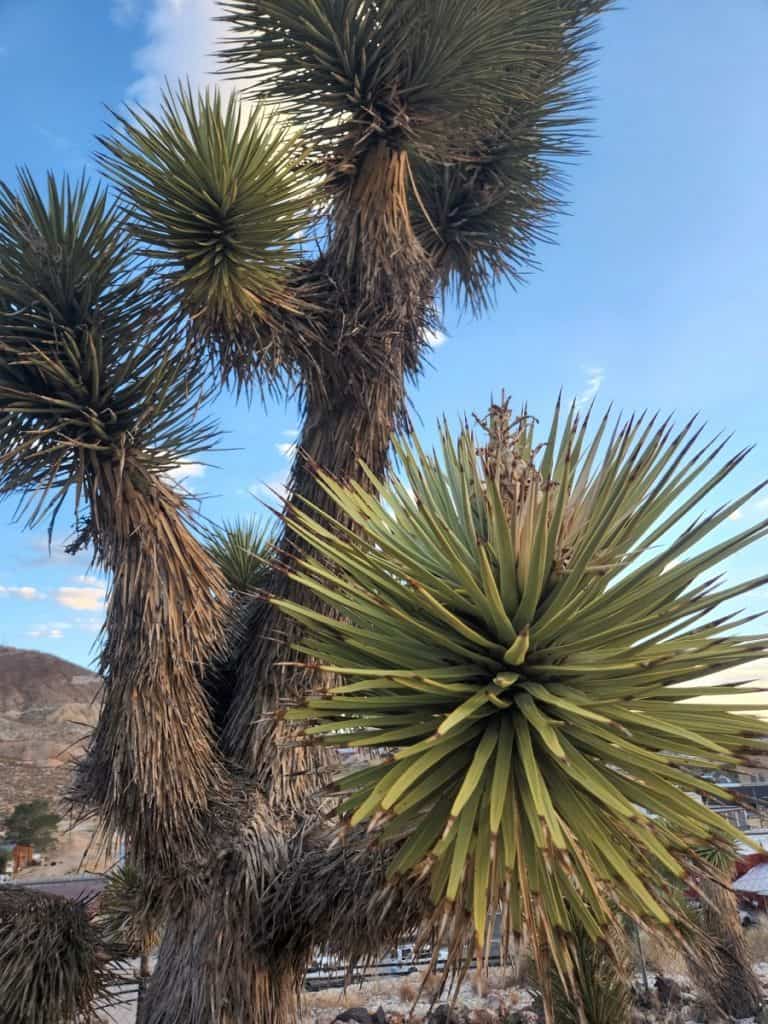
An iconic tree of the American Southwest, the Joshua Tree is a truly unique sight to behold. Its thick trunk branches out into a dense mass of twisting, wavyarms topped with a thick crown of daggered bayonet leaves. These bizarre yet beautiful natured sculptures can remarkably live over 1,000 years under the harsh desert conditions. When in bloom, they produce clusters of creamy white to greenish flowers. The Joshua Tree’s distinctive silhouette is an amazing adaptation that has allowed it to thrive in its unforgiving environment for centuries.
Yucca brevifolia var. jaegeriana (Eastern Joshua Tree)
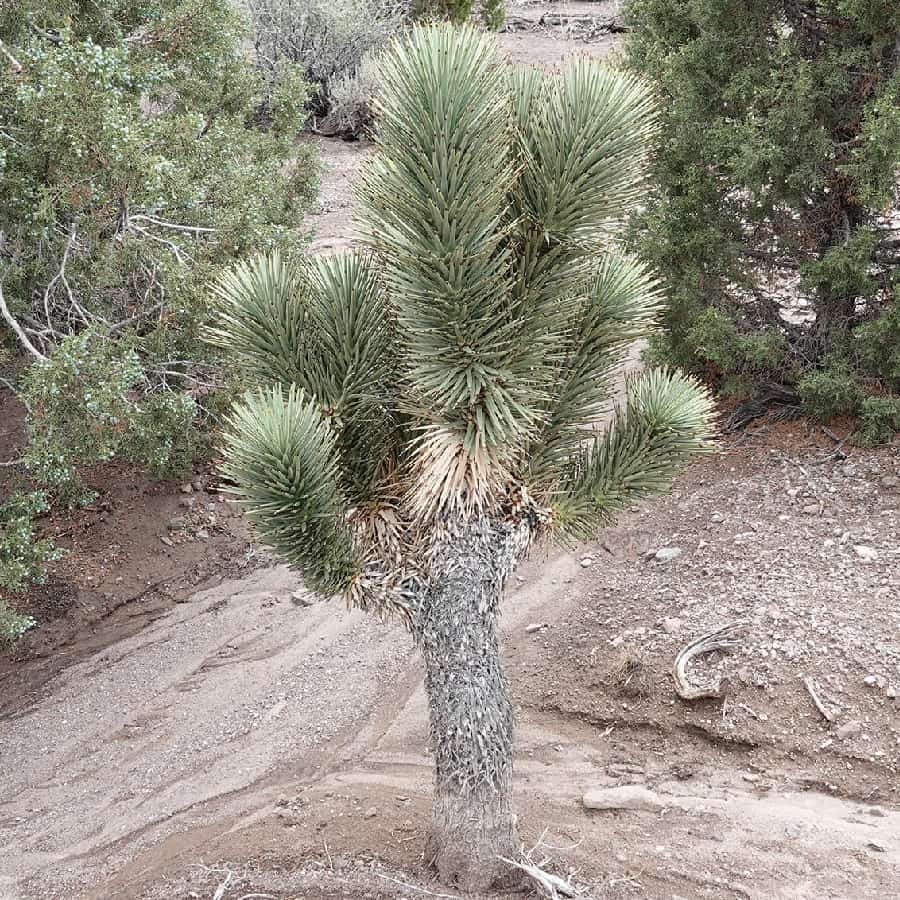
Yucca campestris (Plains Yucca)
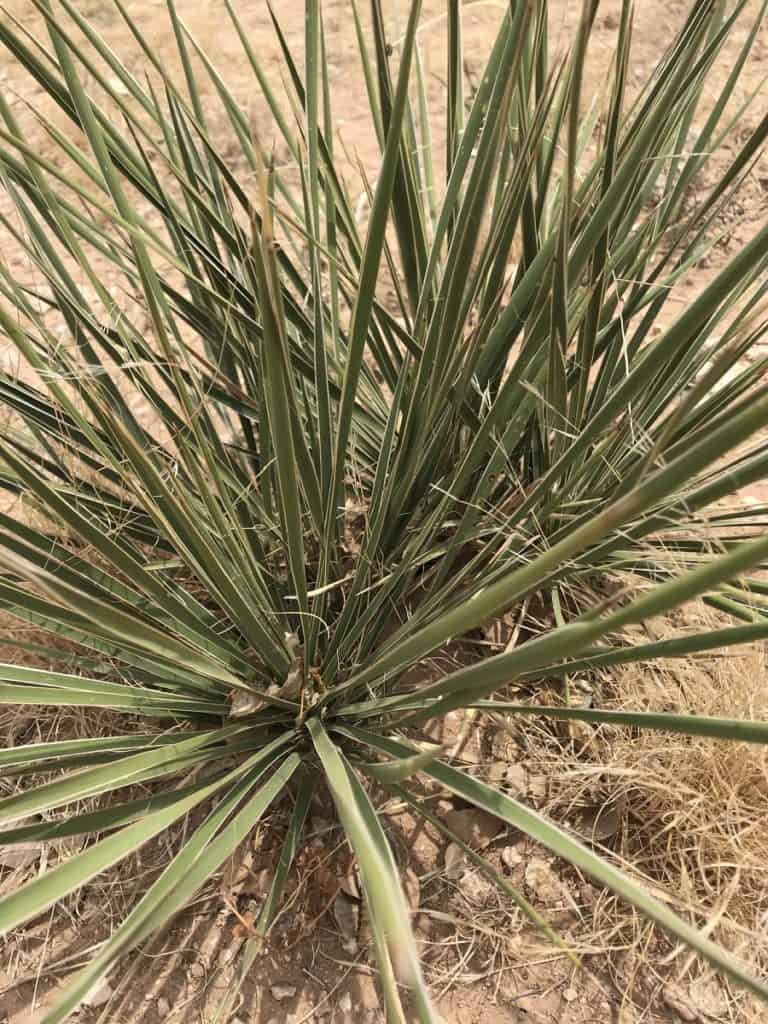
Yucca capensis (Cape Region Yucca)
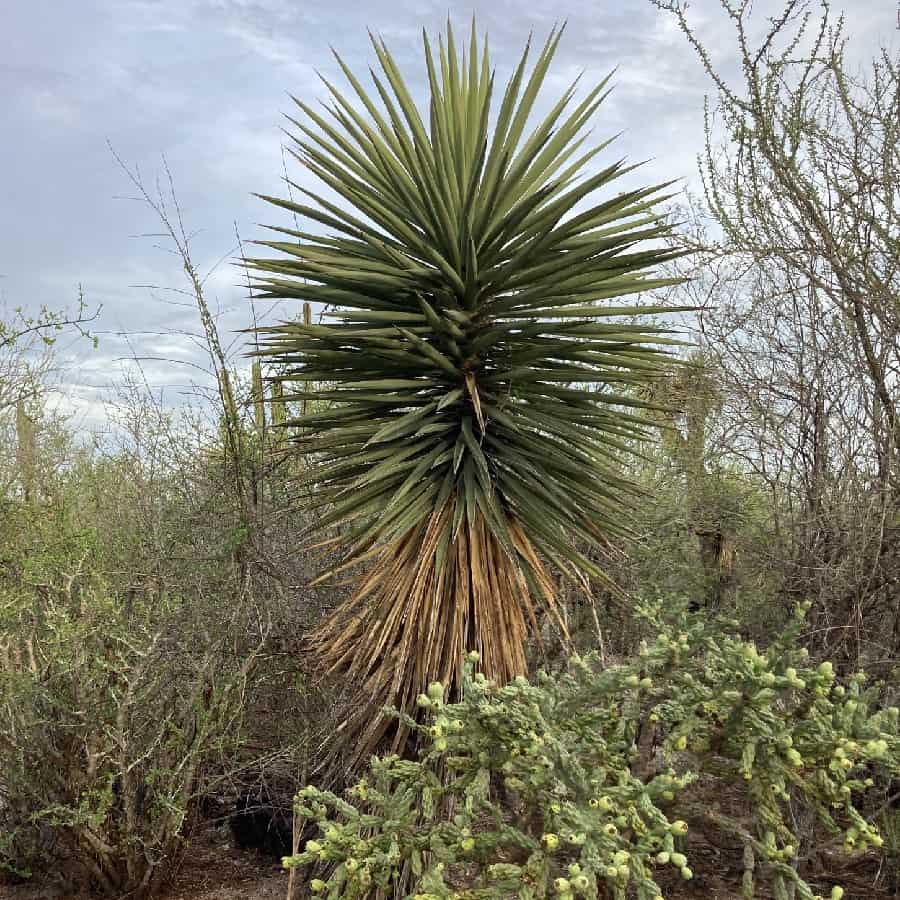
Yucca carnerosana (Giant Spanish-Dagger)
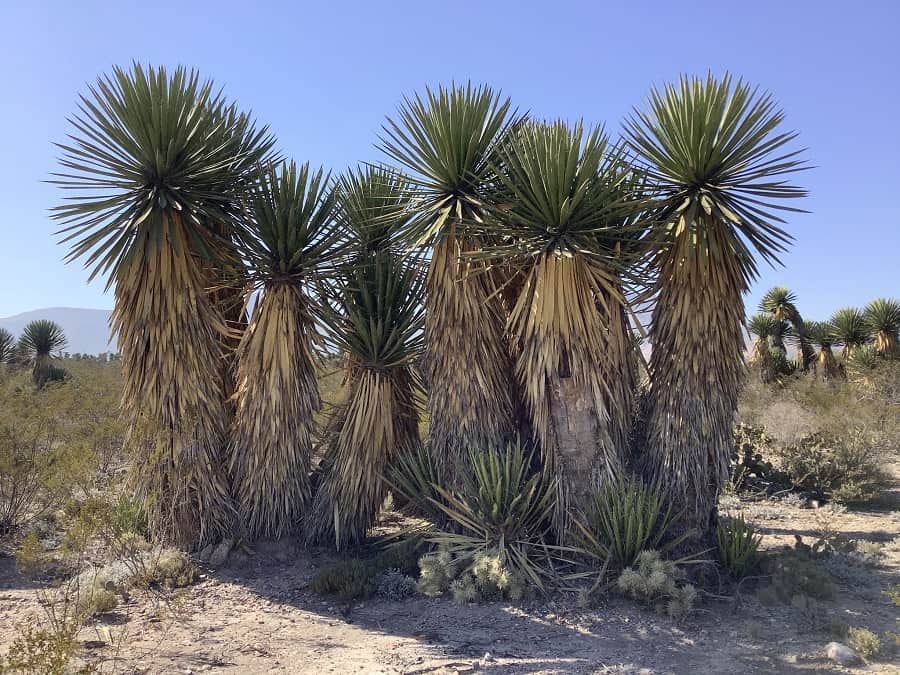
Don’t mess with this gargantuan from Mexico unless you want to be impaled! Mature specimens sprout a colossal 8-foot dome of razor-edged leaves on thick trunks up to 16 feet tall. The flower spikes weigh as much as 65 lbs!
Yucca carrii
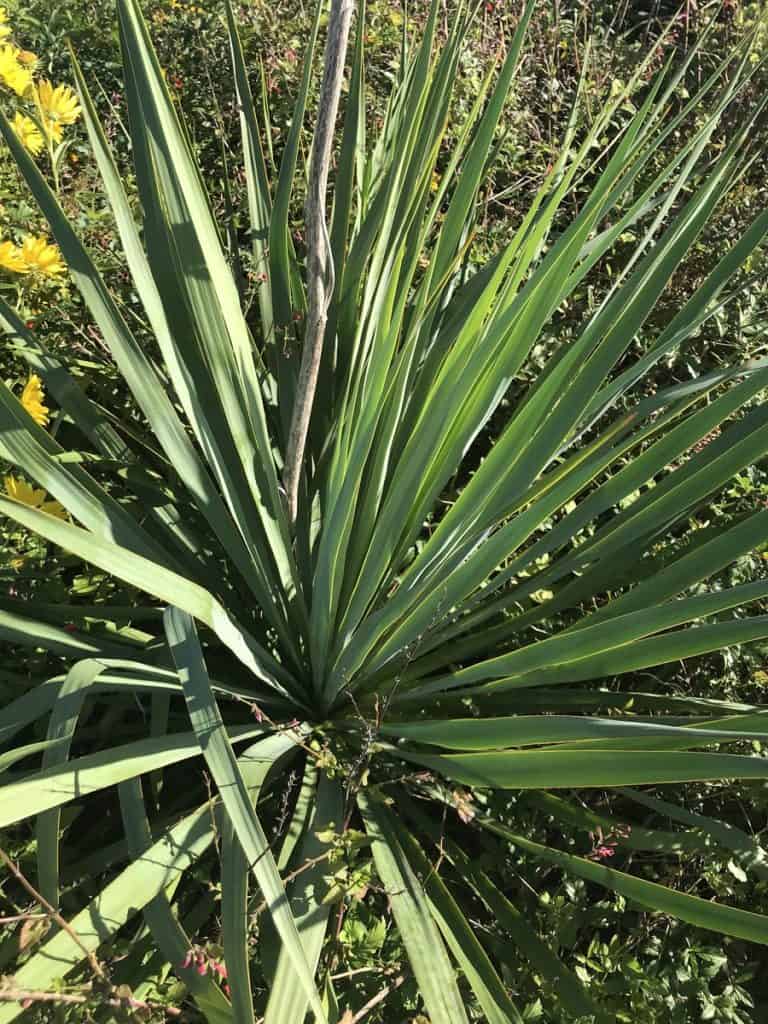
Yucca cernua (Nodding Yucca)
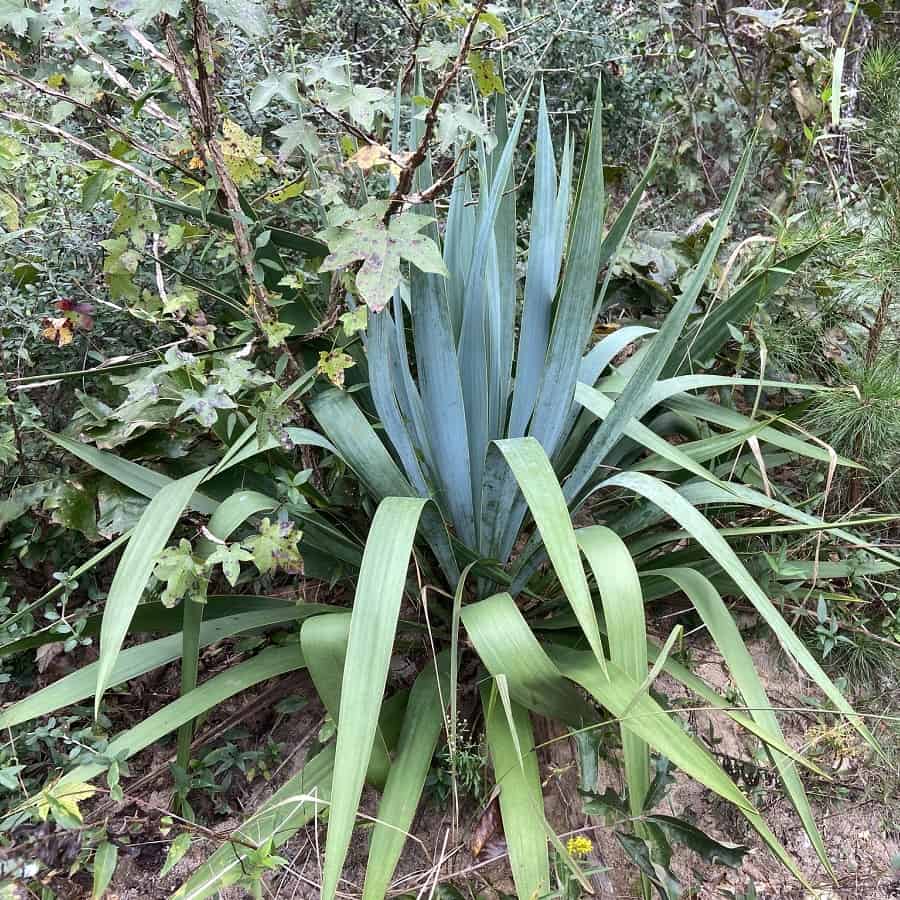
Yucca coahuilensis (Coahuila Yucca)
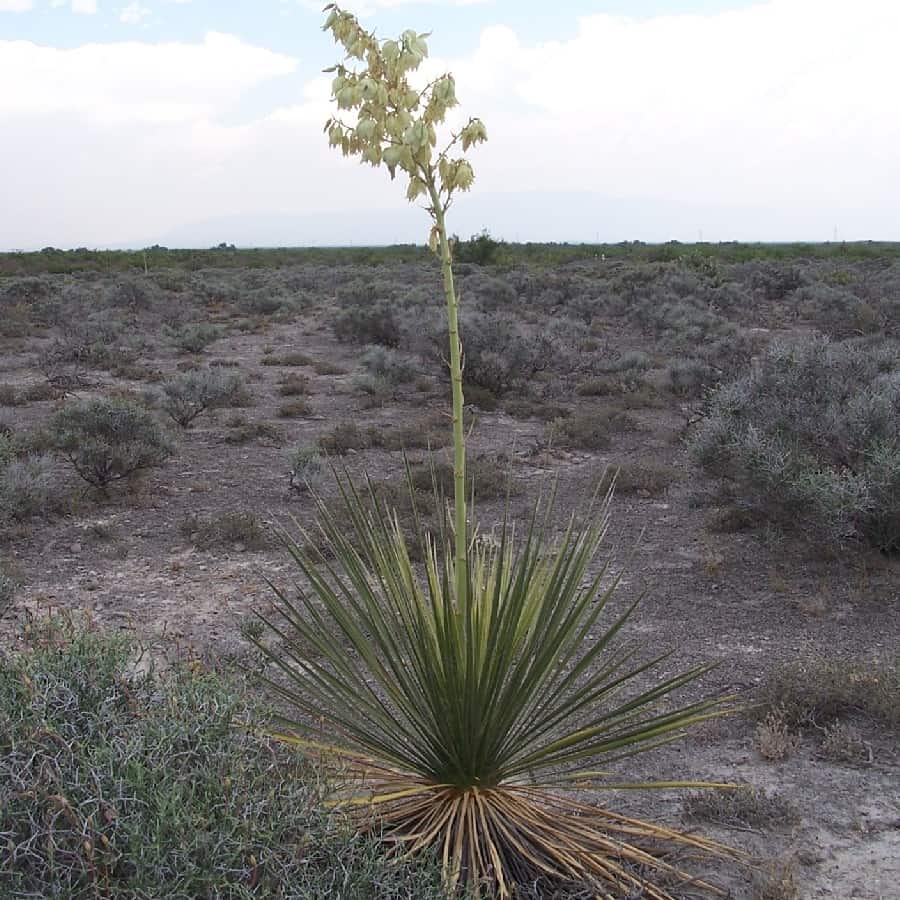
Yucca constricta (Buckley’s Yucca)
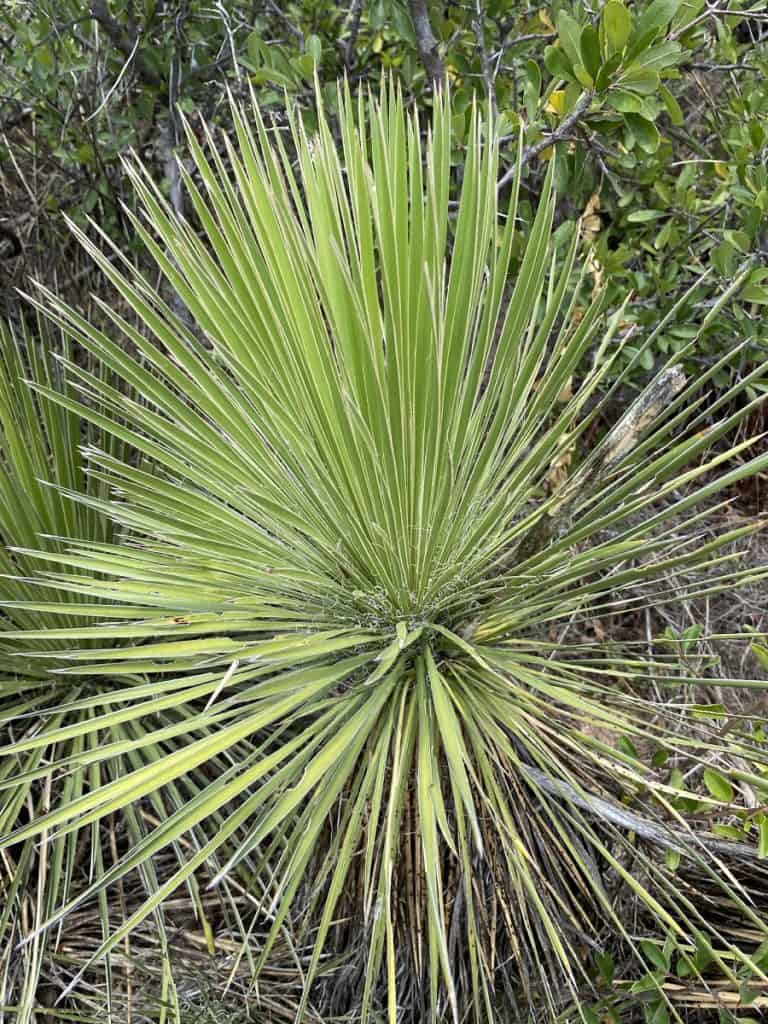
Yucca decipiens (Palm Yucca)
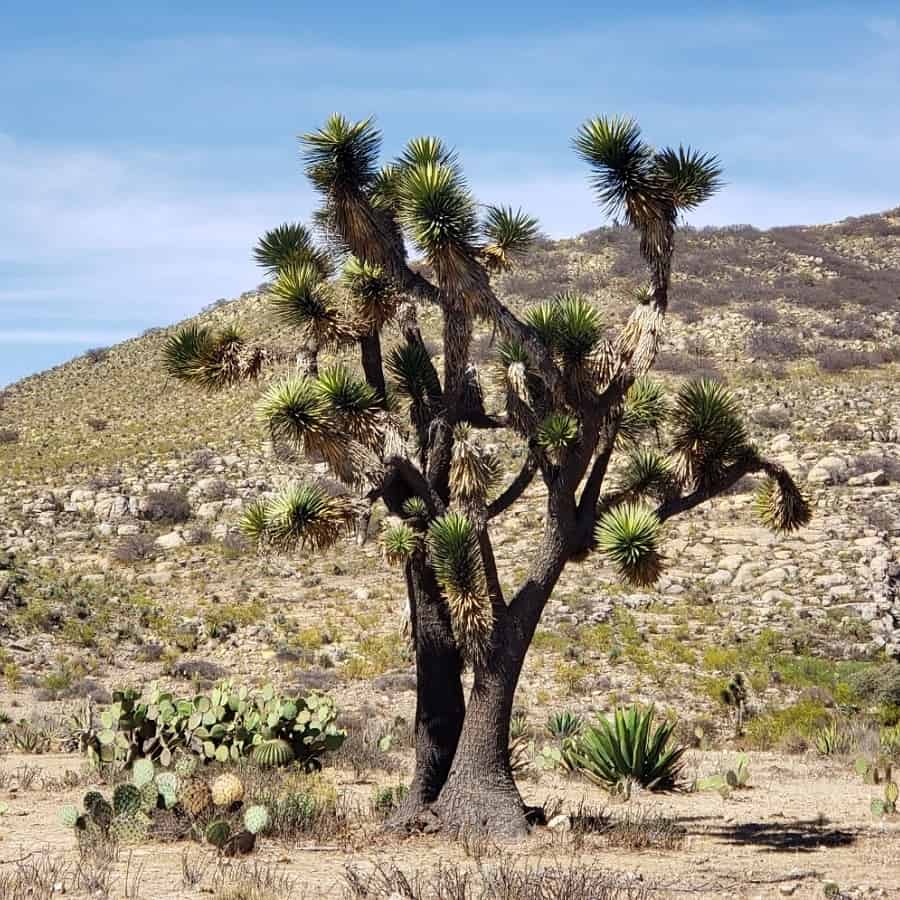
Yucca desmetiana
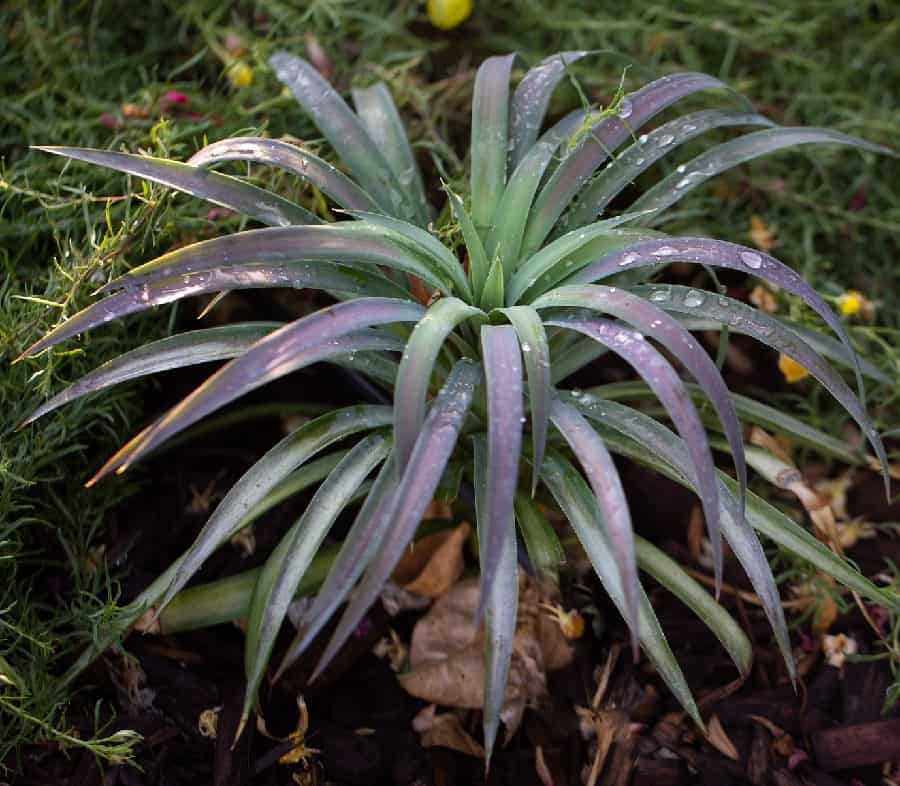
This soft-leaved beauty has some serious sass! Its long, rubbery blue-green leaves arch gracefully outward when young, but then go full-on punk rock as they mature to a vibrant burgundy hue, especially in winter. A single stunning rosette when just a babe, but turns into a rebellious multi-stemmed rebel with age.
Yucca elata (Soaptree Yucca)
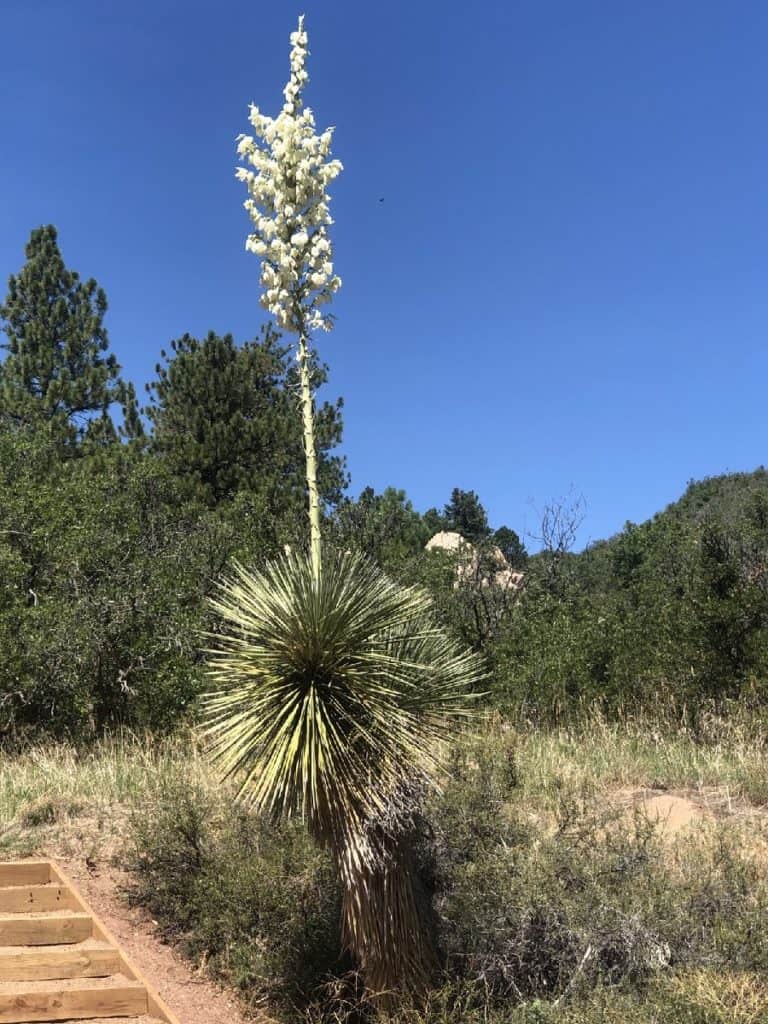
Yucca elata var. verdiensis (Verdi Yucca)
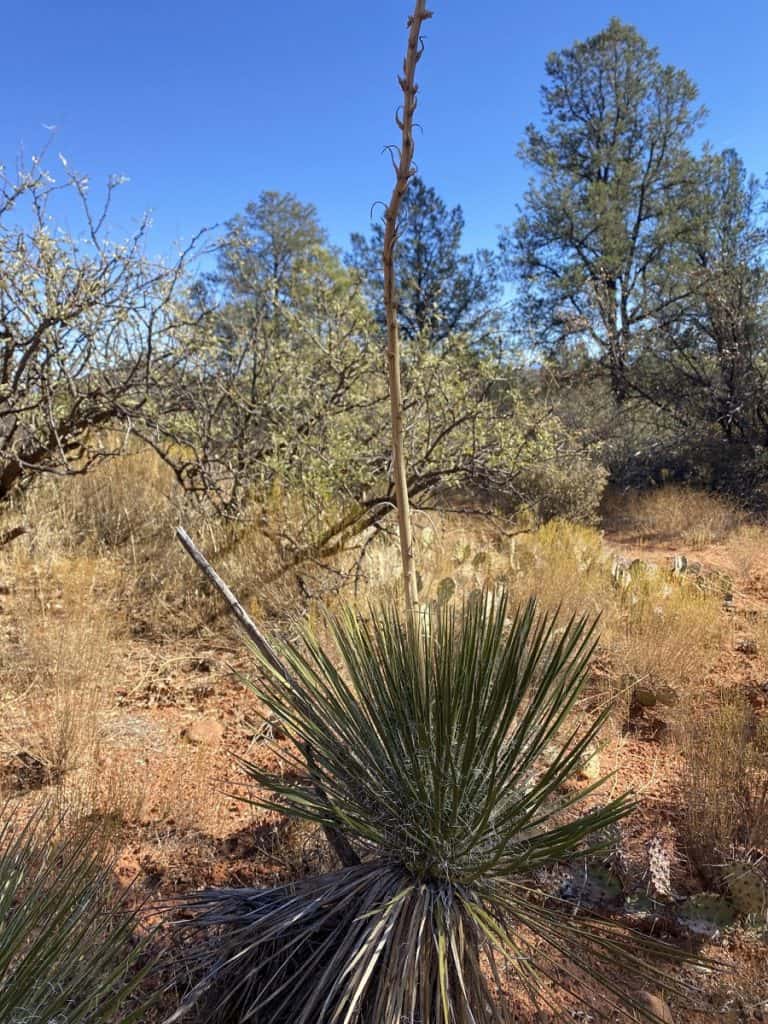
Yucca endlichiana (Creeping Dwarf Yucca)
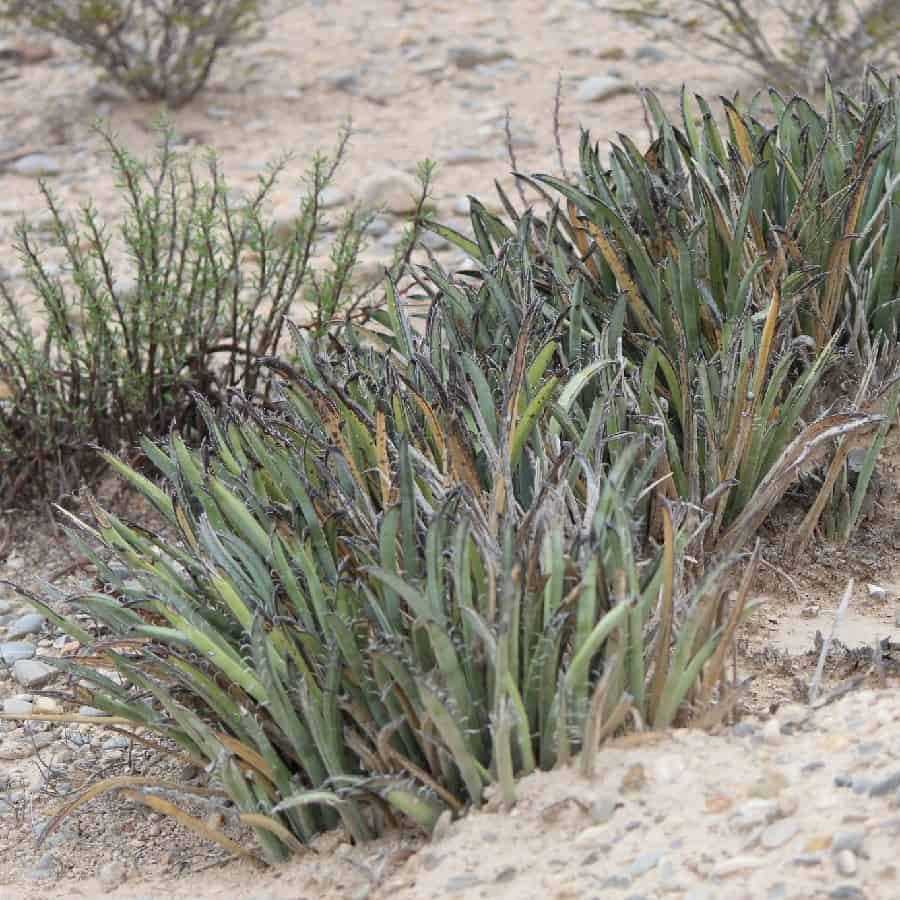
Yucca faxoniana (Faxon Yucca)
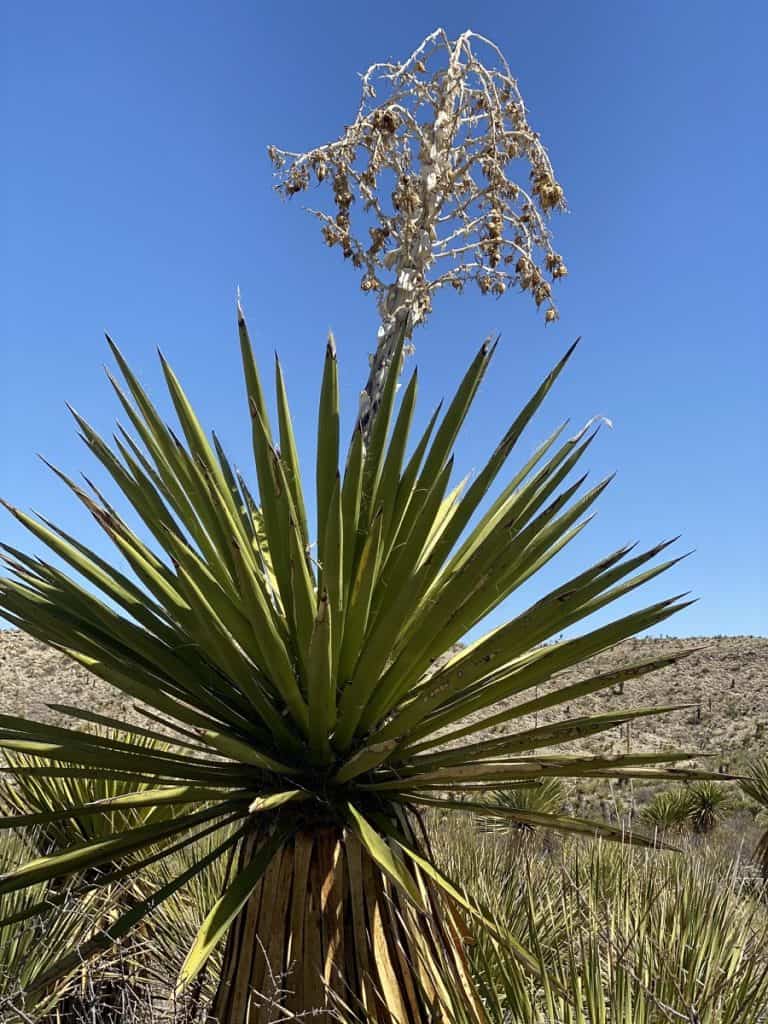
Yucca filamentosa (Common Yucca)
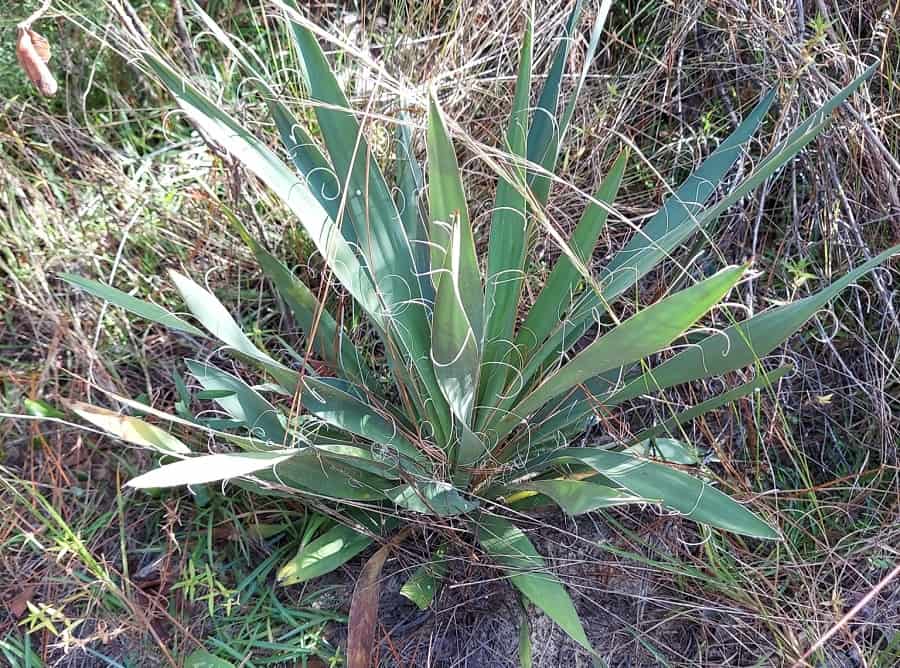
The name doesn’t do this spunky number justice! While it may be common, there’s nothing plain about this feisty perennial shrub. The thick, blue-green strappy leaves have decorative white thread-like filaments along the edges that give it a funky, fringed look. When in bloom, it puts on a spectacular show with tall stalks packed with creamy white flowers.
Yucca filamentosa f. variegata (Variegated Common Yucca)
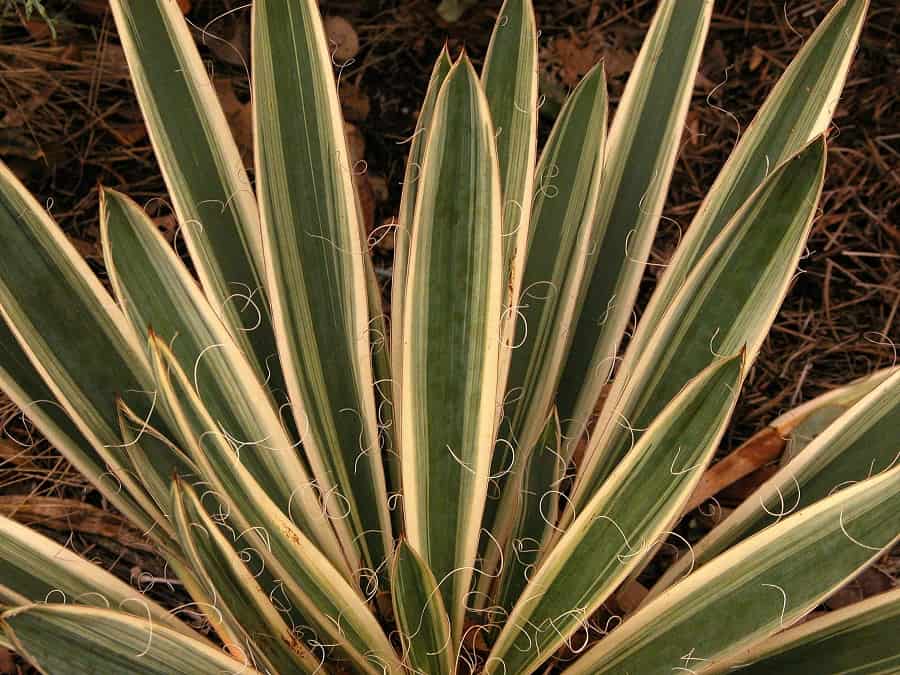
Yucca filamentosa subs. concava
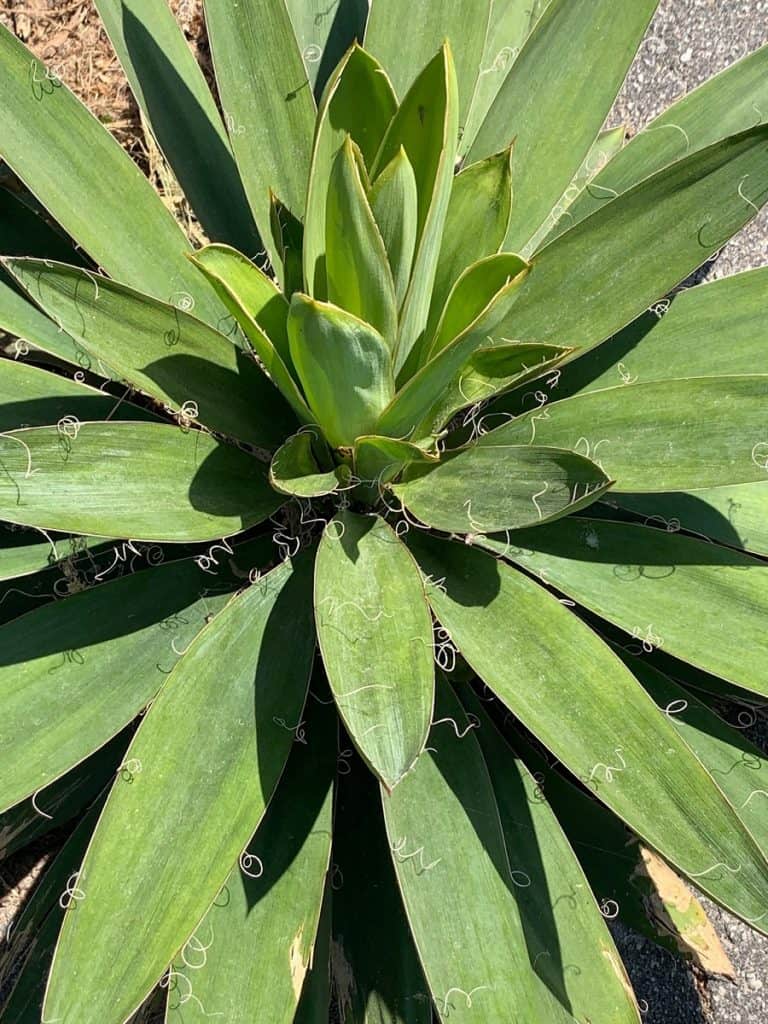
Yucca filifera (Tree Yucca)
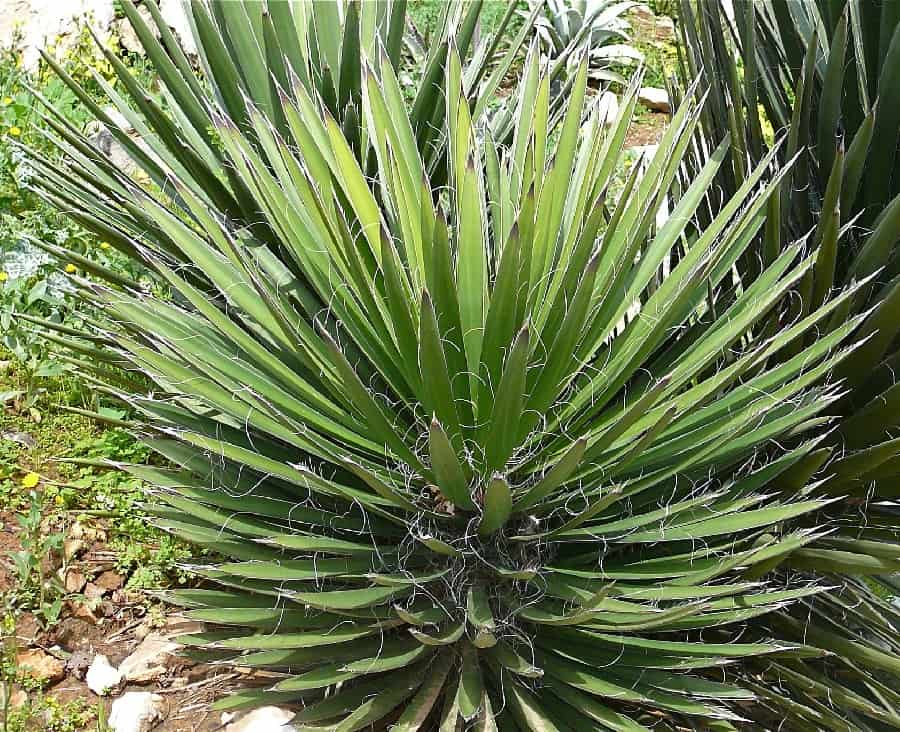
A real showstopper reaching up to 33 feet, this sculptural tree blazes with twisting branches capped by dense rosettes of rough, curved blue leaves. The pendulous flower clusters put on an unforgettable summertime show.
Yucca flaccida (Weak-leaf Yucca)
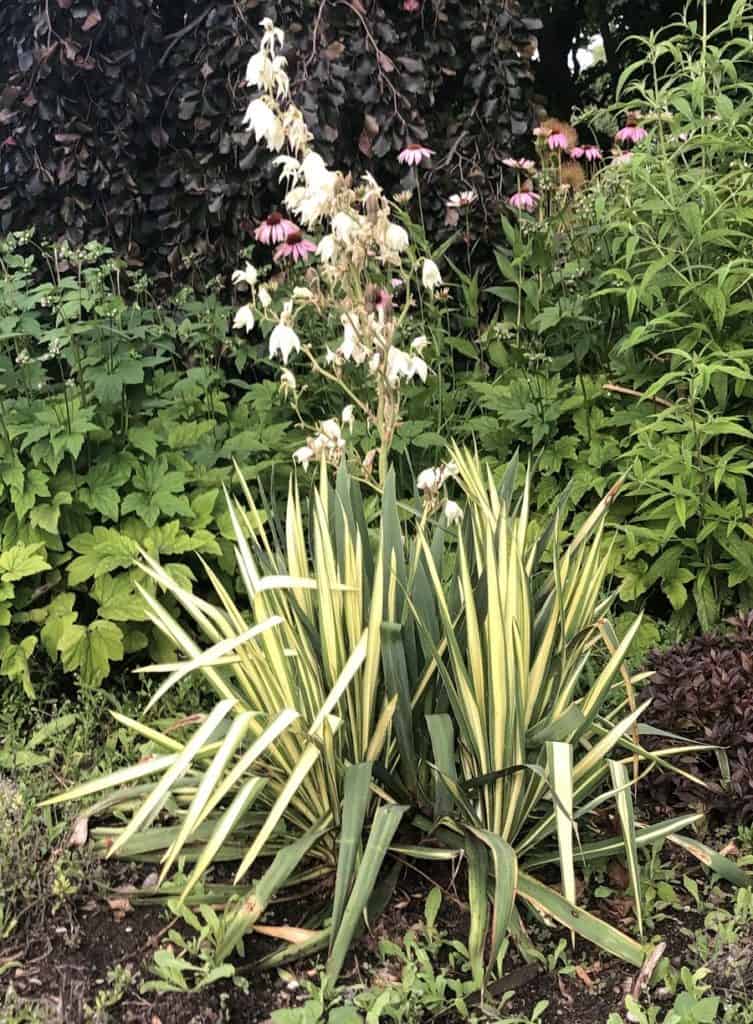
Yucca gigantea (Spineless Yucca)
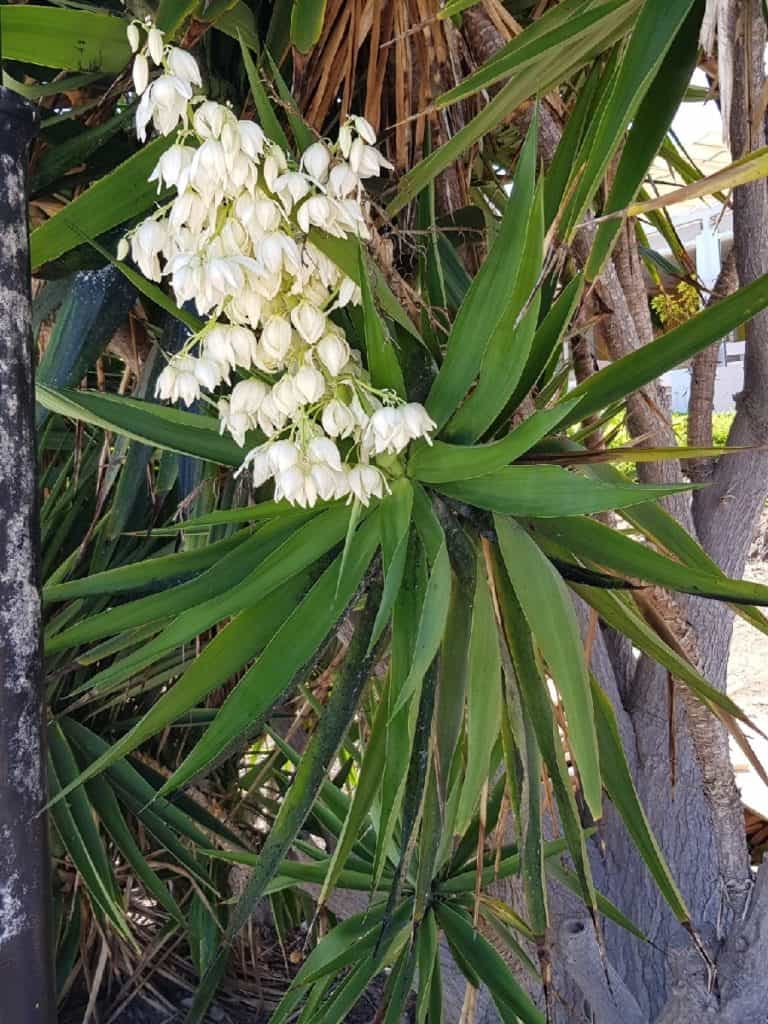
Spineless but certainly not harmless! This bold beauty develops thick, puckered trunks sprouting masses of soft blue-green leaves from each branch. The creamy flowers emit a sweet, fruity fragrance.
Yucca glauca (Great Plains Yucca)
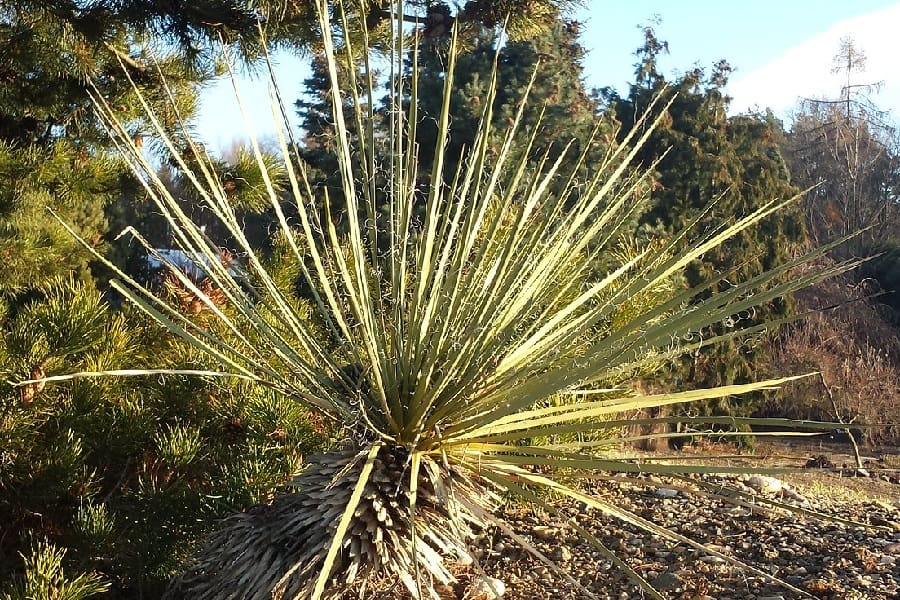
Yucca glauca subs. stricta
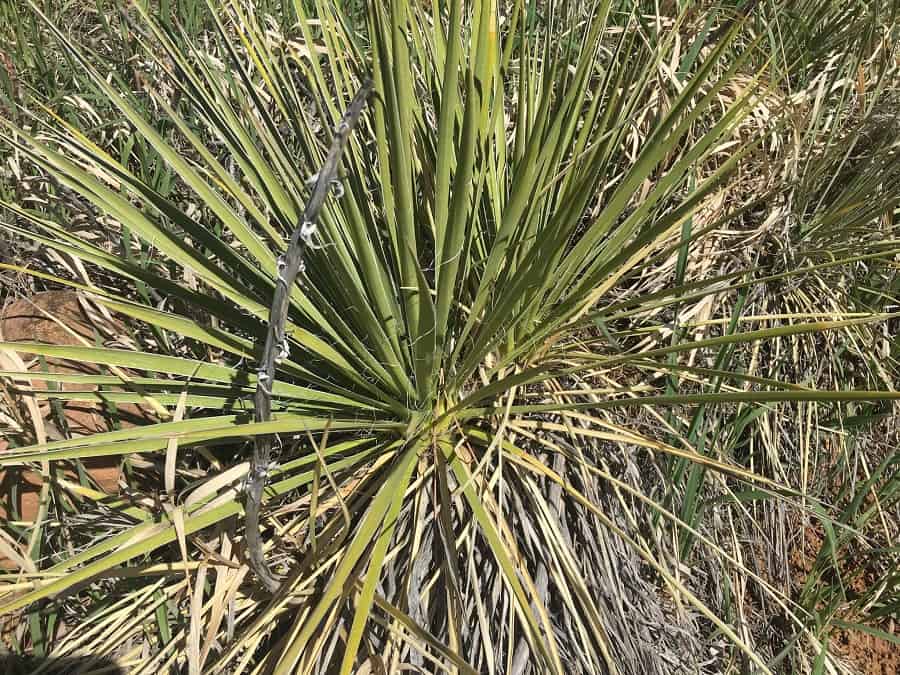
Yucca gloriosa (Moundlily Yucca)
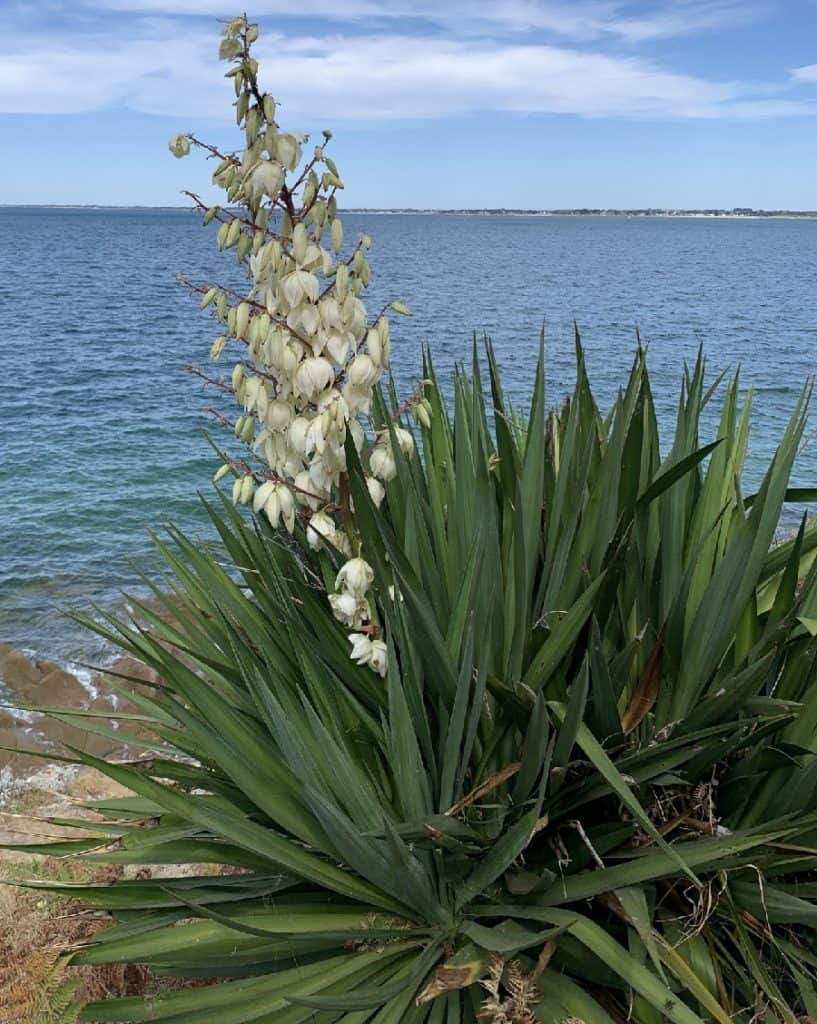
Now here’s a plant that knows how to grab attention! From the ground (or woody trunk) it shoots out dark green, razor-sharp swordlike leaves that mean serious business. But then in midsummer, it pulls a total 180 with huge sprays of pendulous, bell-shaped white beauties tinged red or purple. These showstopping flower panicles can reach over 8 feet long and last for months!
Yucca gloriosa var. tristis
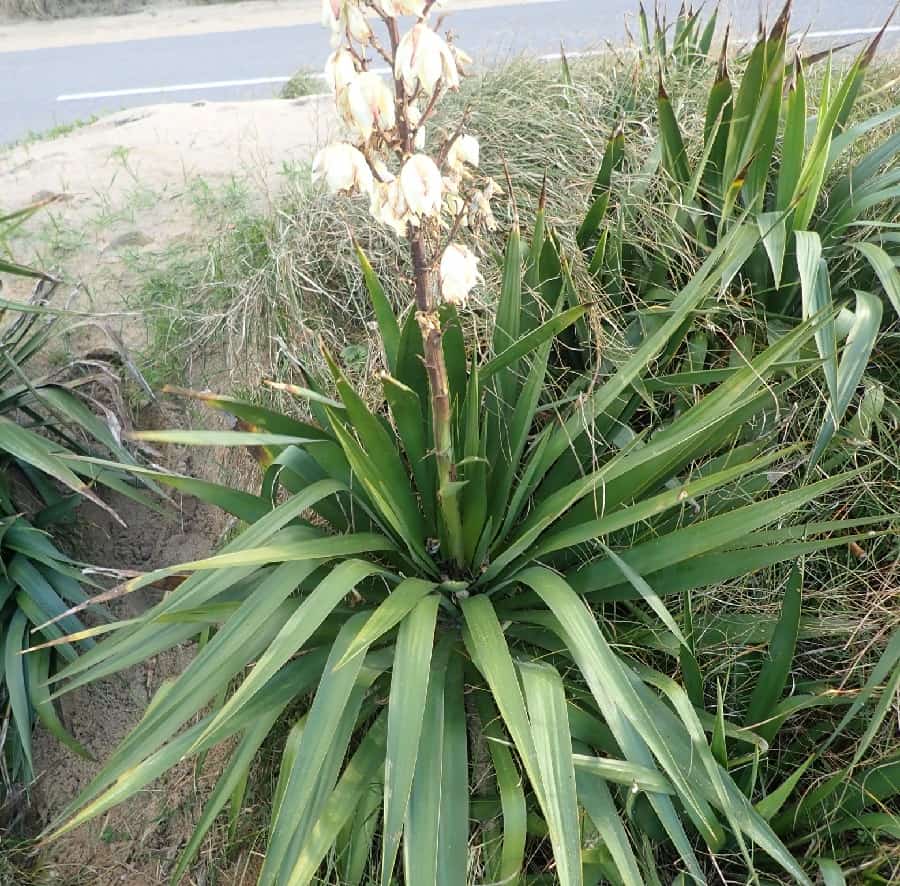
Yucca harrimaniae (Dwarf Yucca)
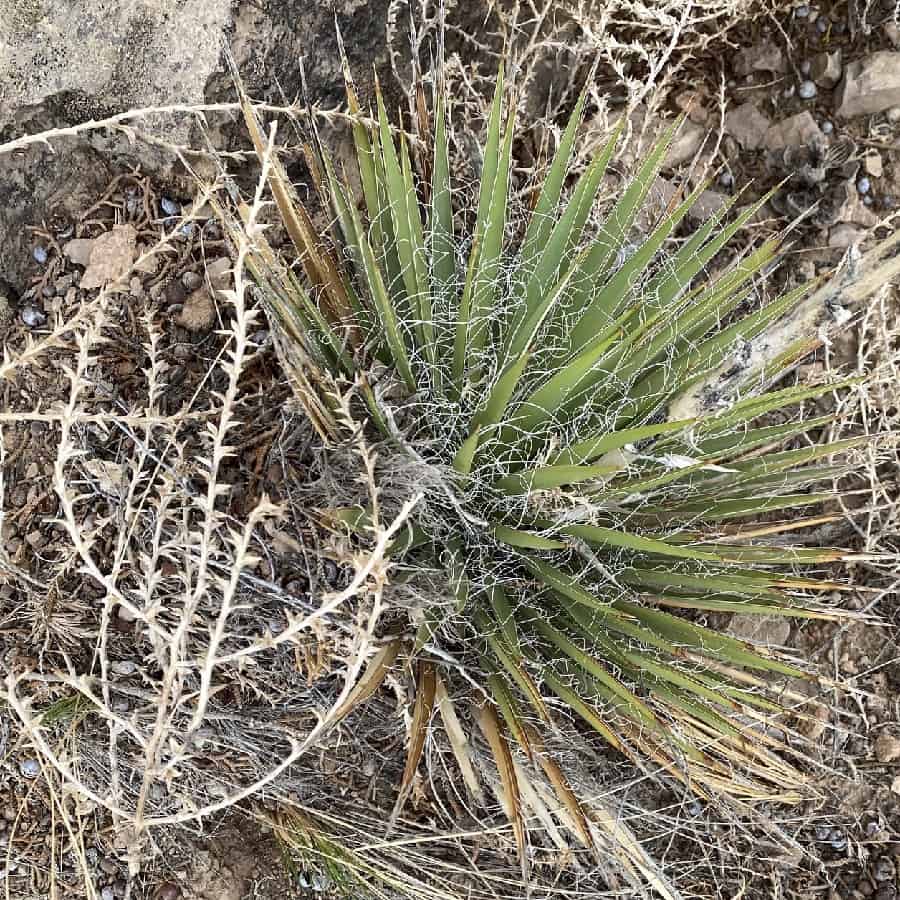
Yucca harrimaniae var. gilbertiana
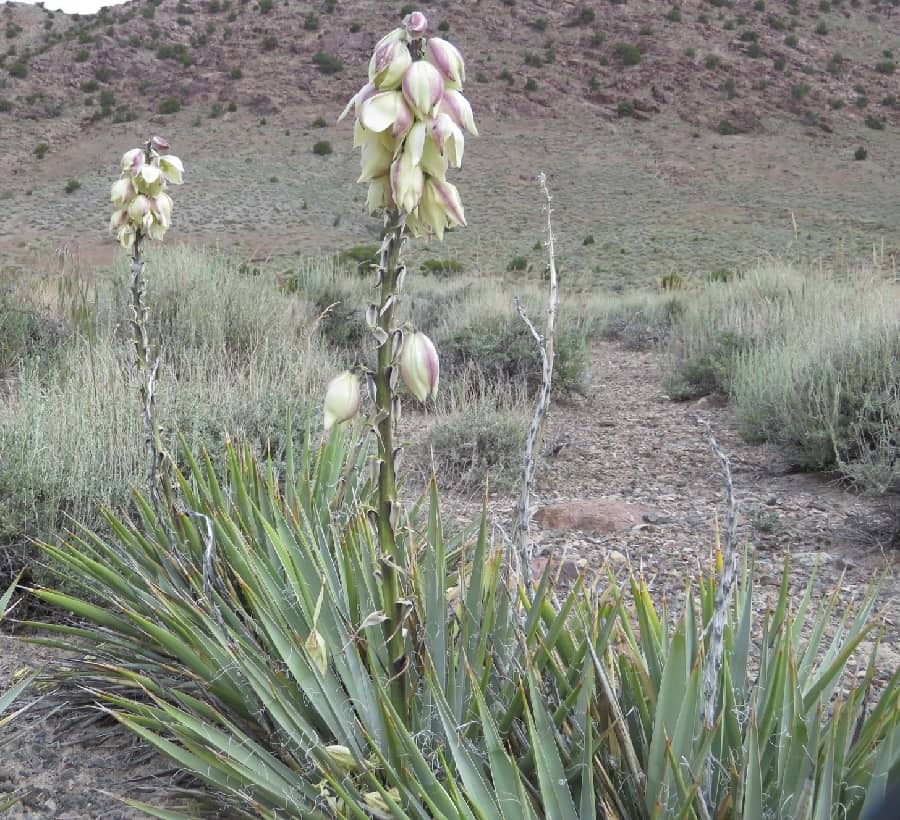
Yucca intermedia (Intermediate Yucca)
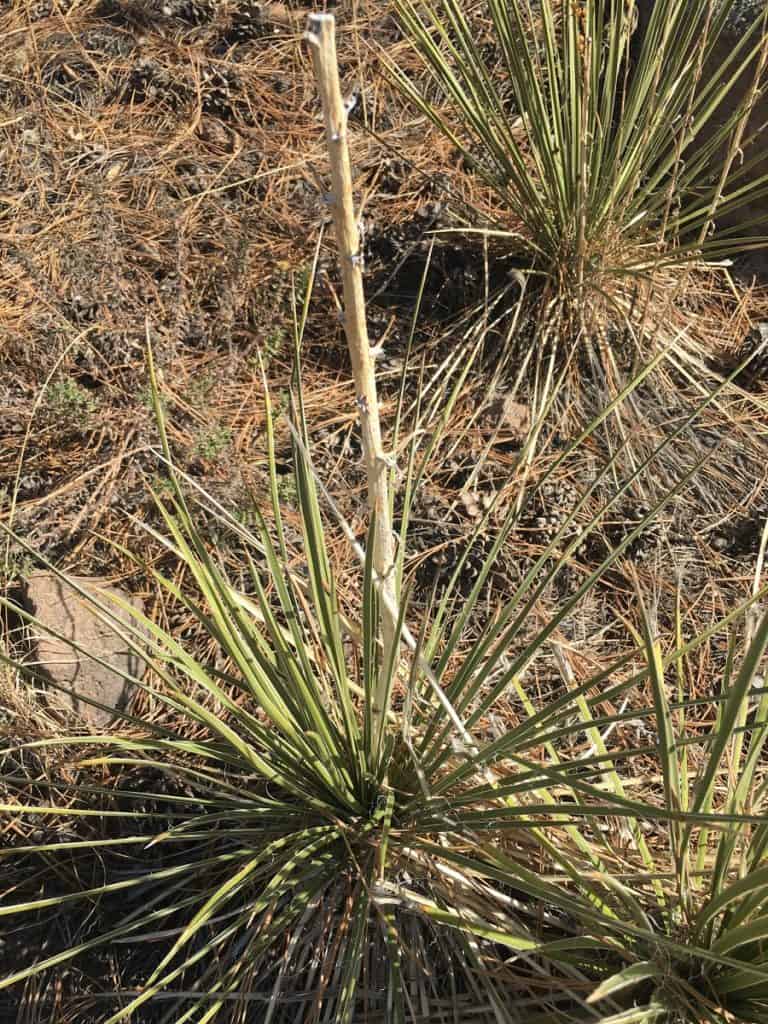
Yucca jaliscensis (Jalisco Yucca)
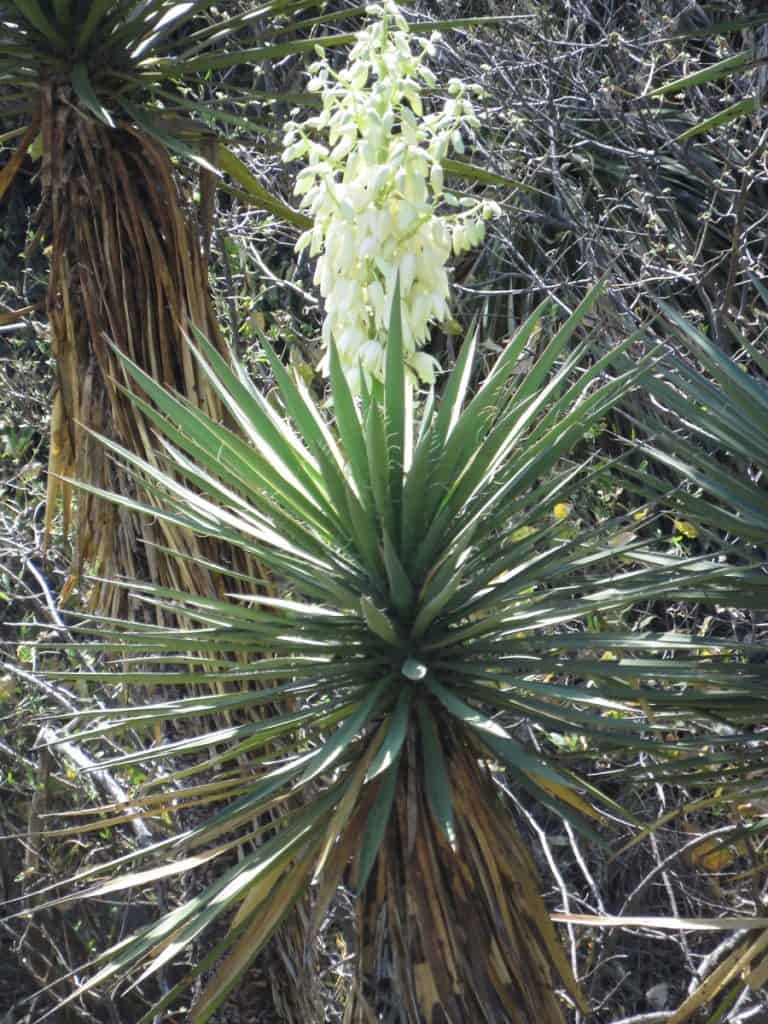
Yucca lacandonica (Tropical Yucca)
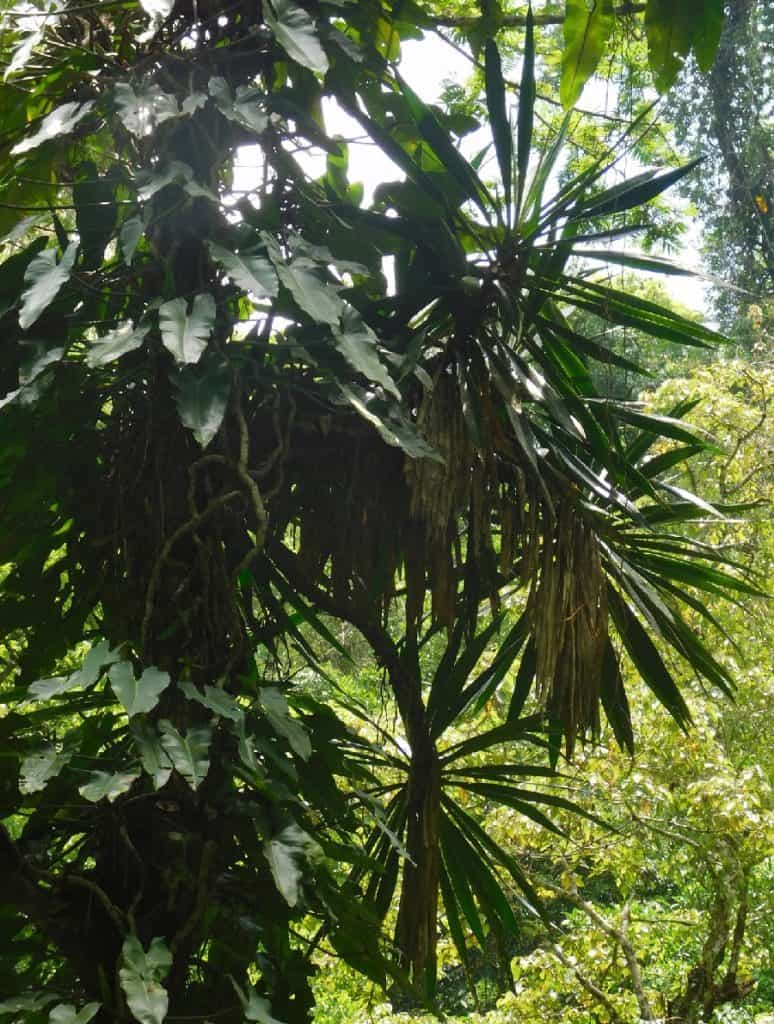
Yucca linearifolia (Linear-leaf Yucca)
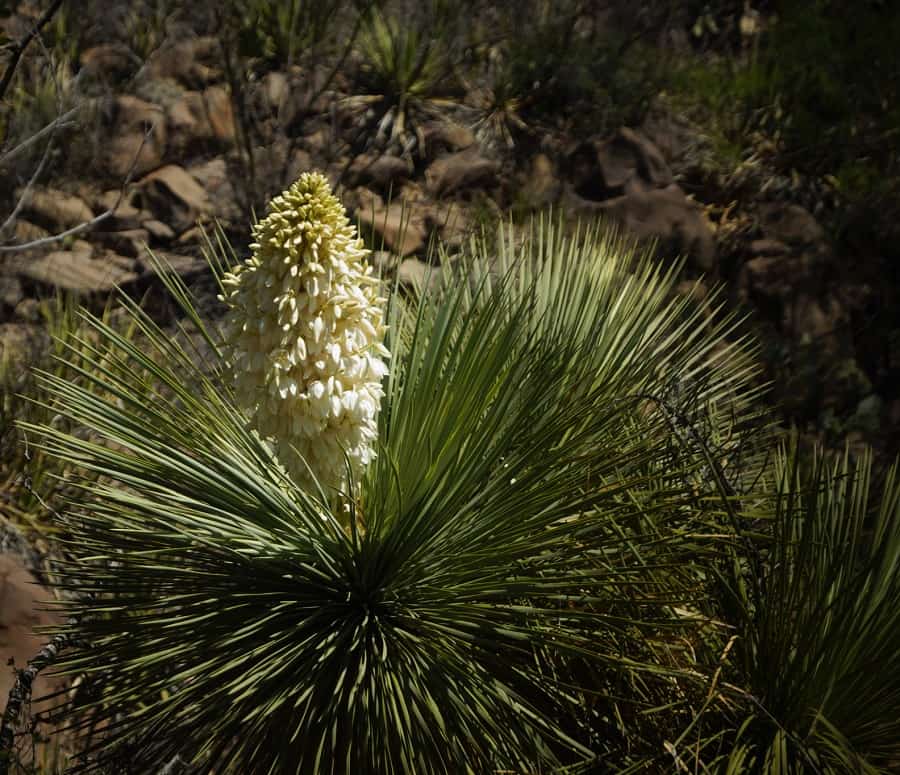
A real showstopper in the yucca world! This tree-like beauty develops a thick, stout trunk lined with hundreds of skinny, pale blue-green leaves in a wildly funky globular head. When mature, it puts on an amazing display with stalks packed with creamy white blooms rising high above the twisty foliage.
Yucca louisianensis (Gulf Coast Yucca)
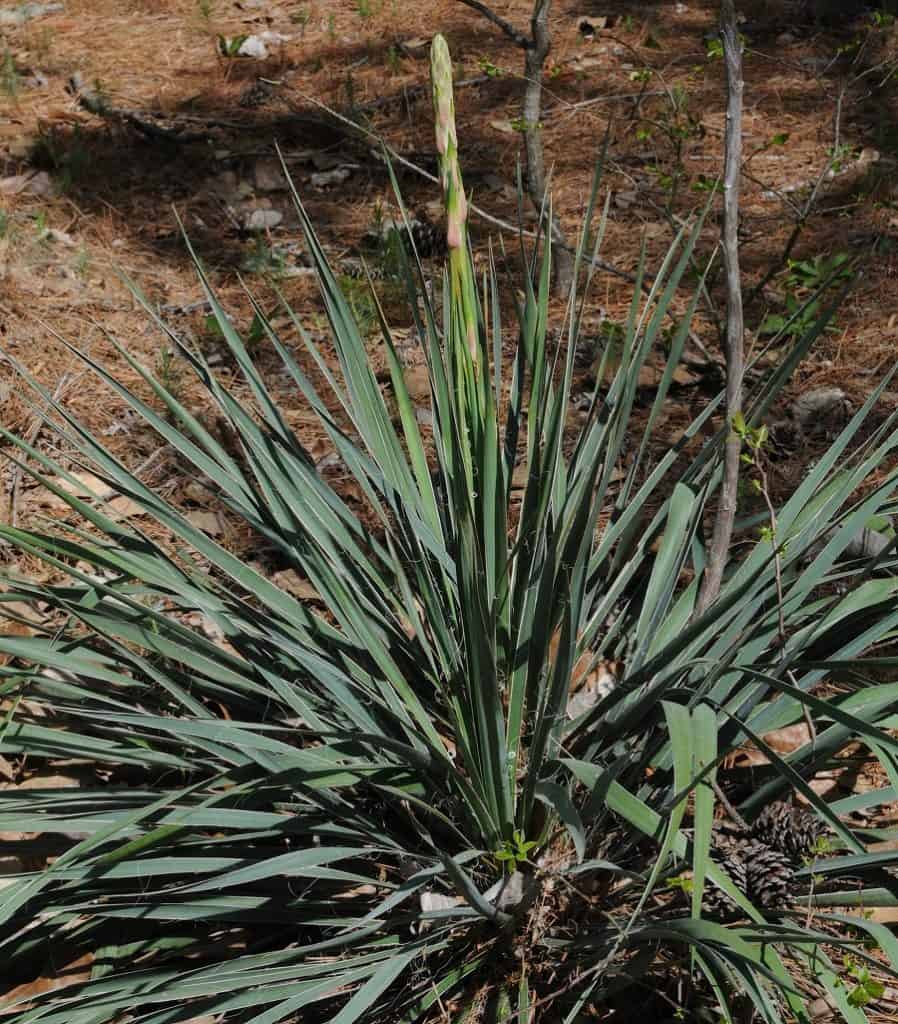
Yucca madrensis (Mountain Yucca)
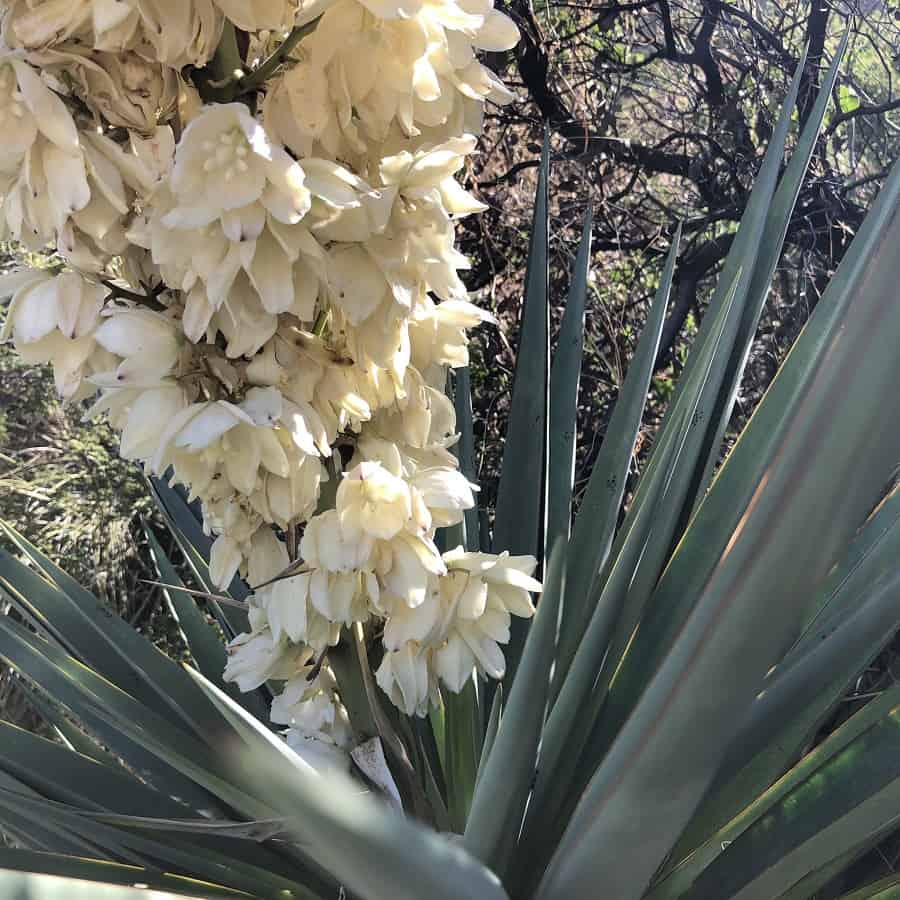
Yucca mixtecana (Thin-stemmed Oaxaca-Puebla Yucca)
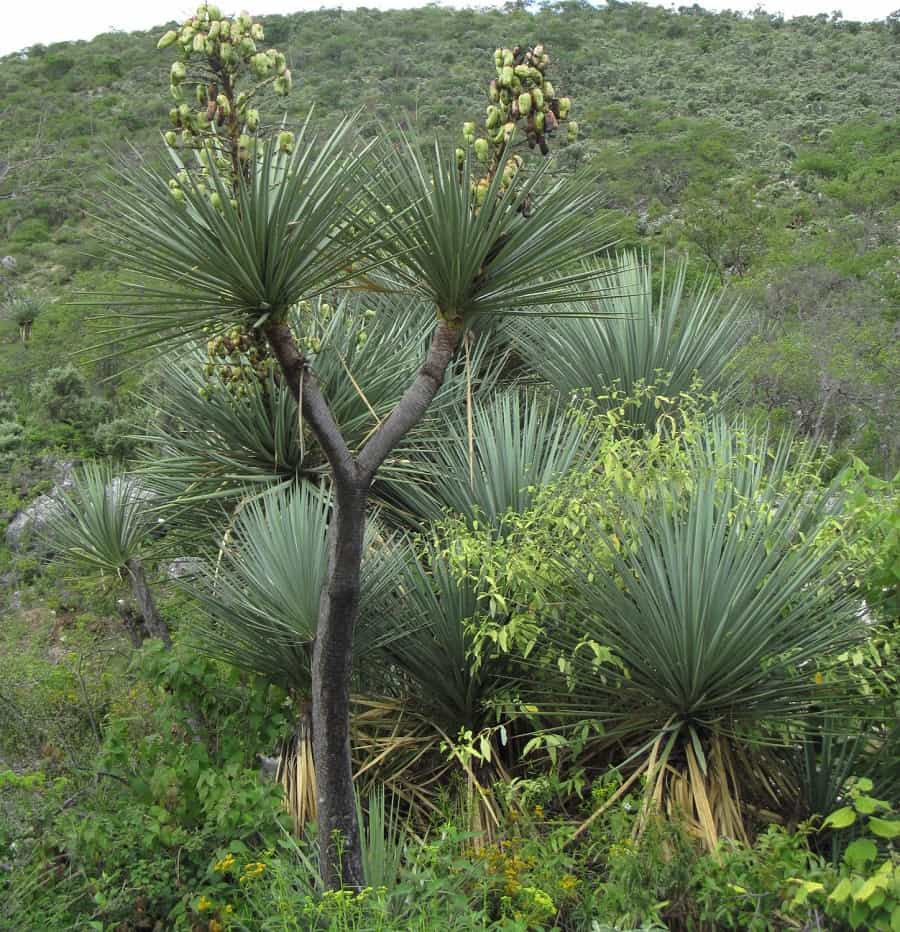
Yucca necopina (Glen Rose Yucca)
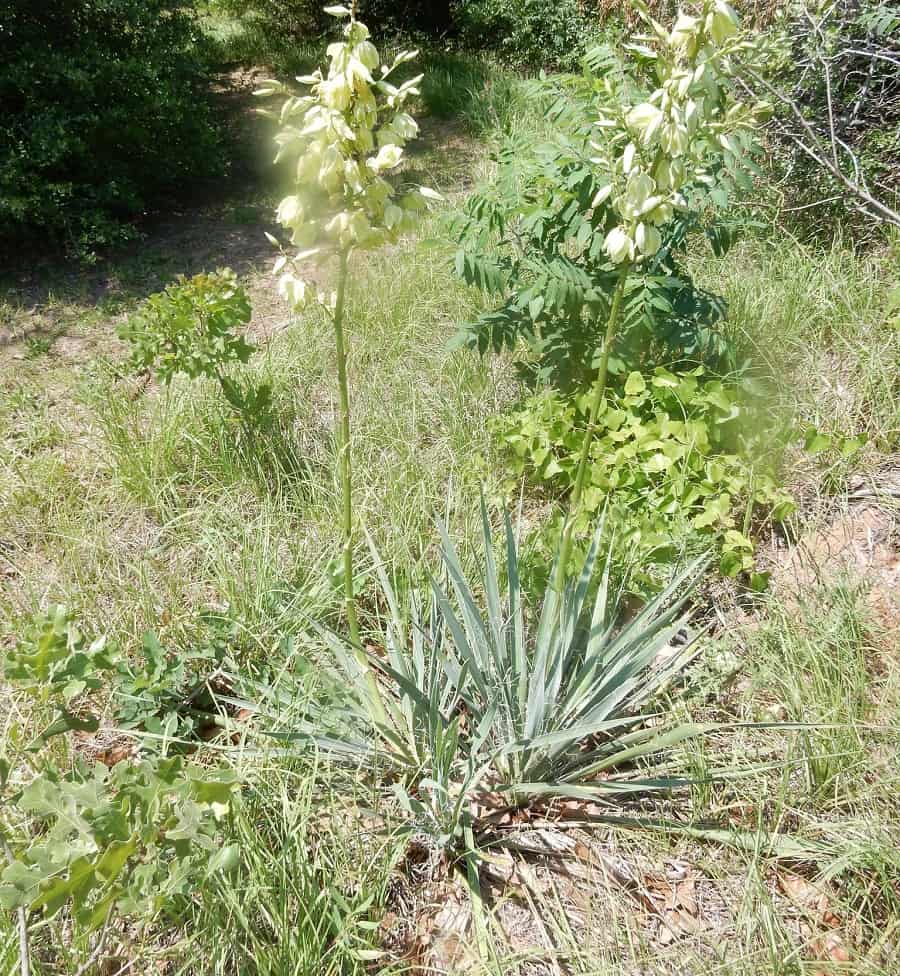
Yucca neomexicana (New Mexican Blue Yucca)
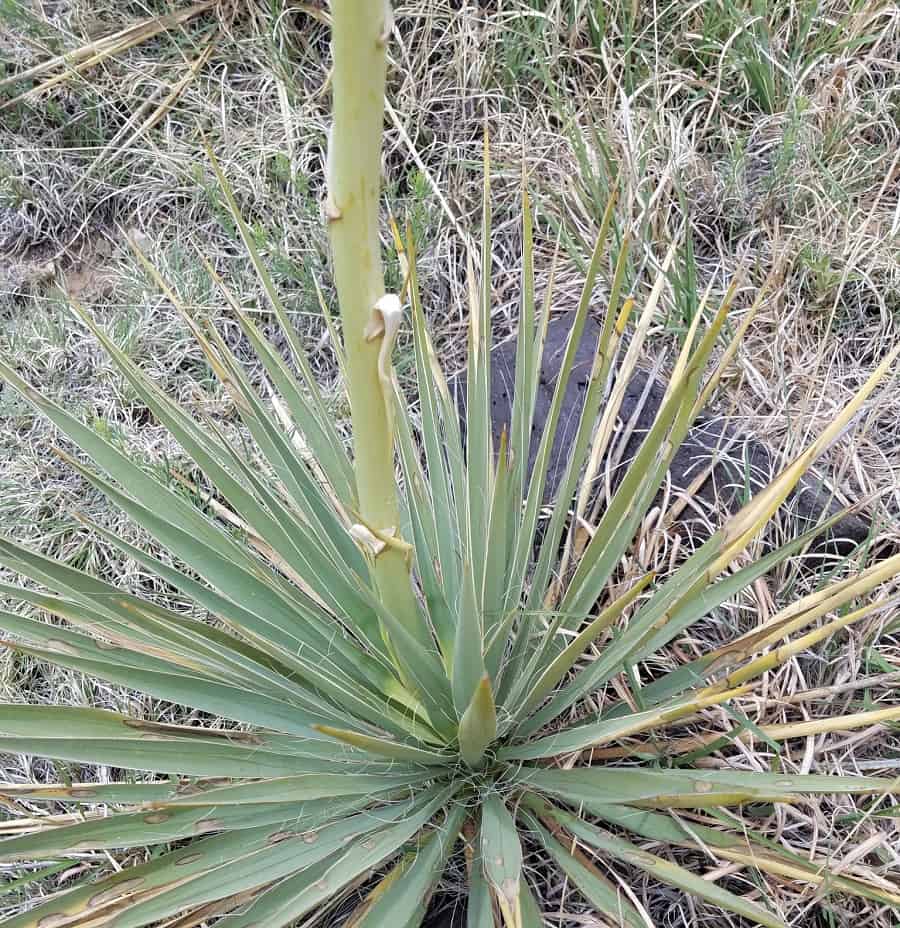
Yucca pallida (Pale Yucca)
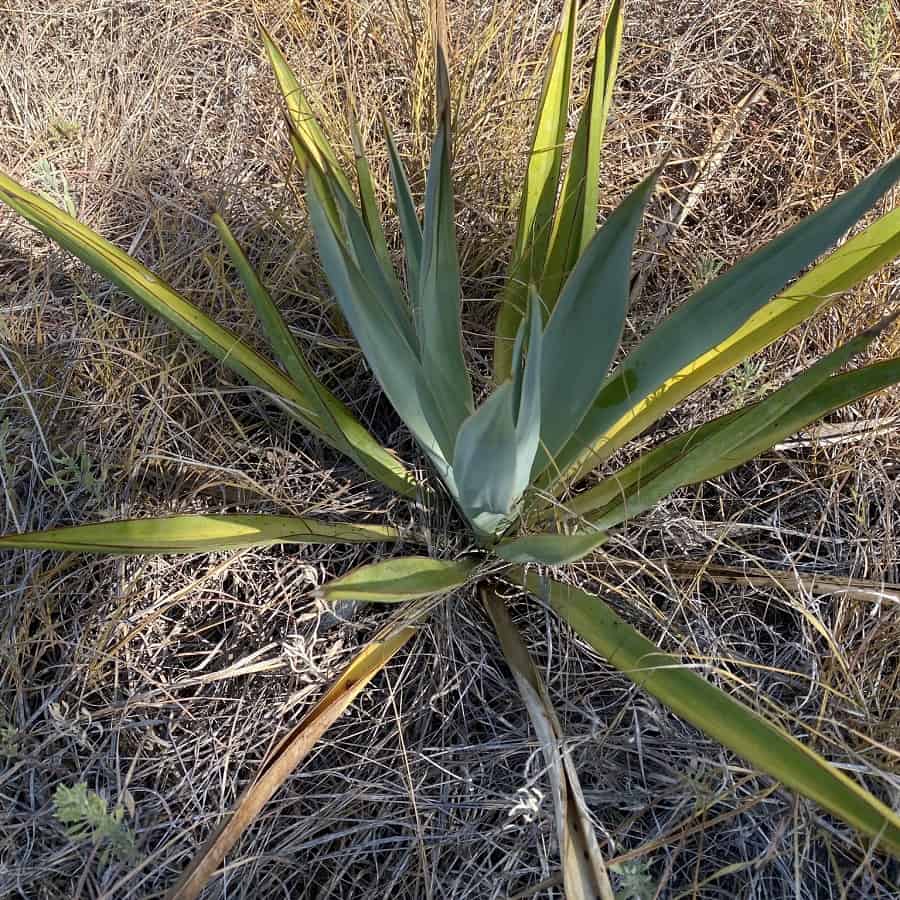
Yucca periculosa (Izote Yucca)
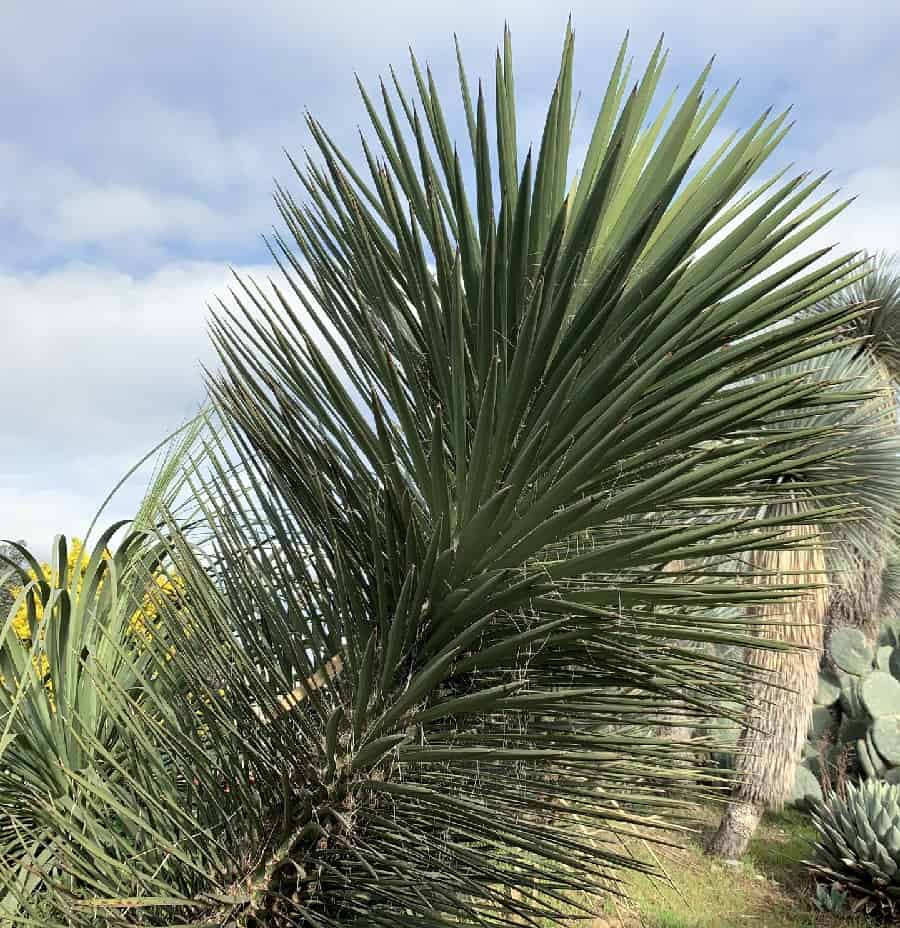
Yucca potosina (Potosí Palm Yucca)
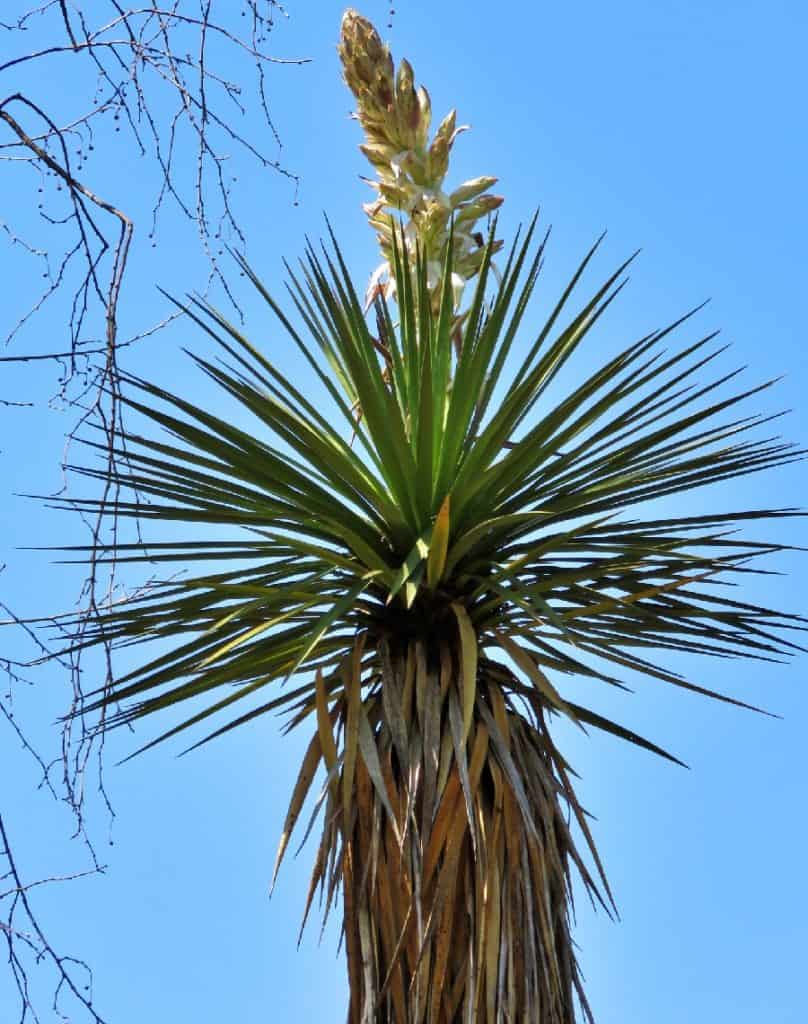
Yucca queretaroensis (Queretaro Yucca)
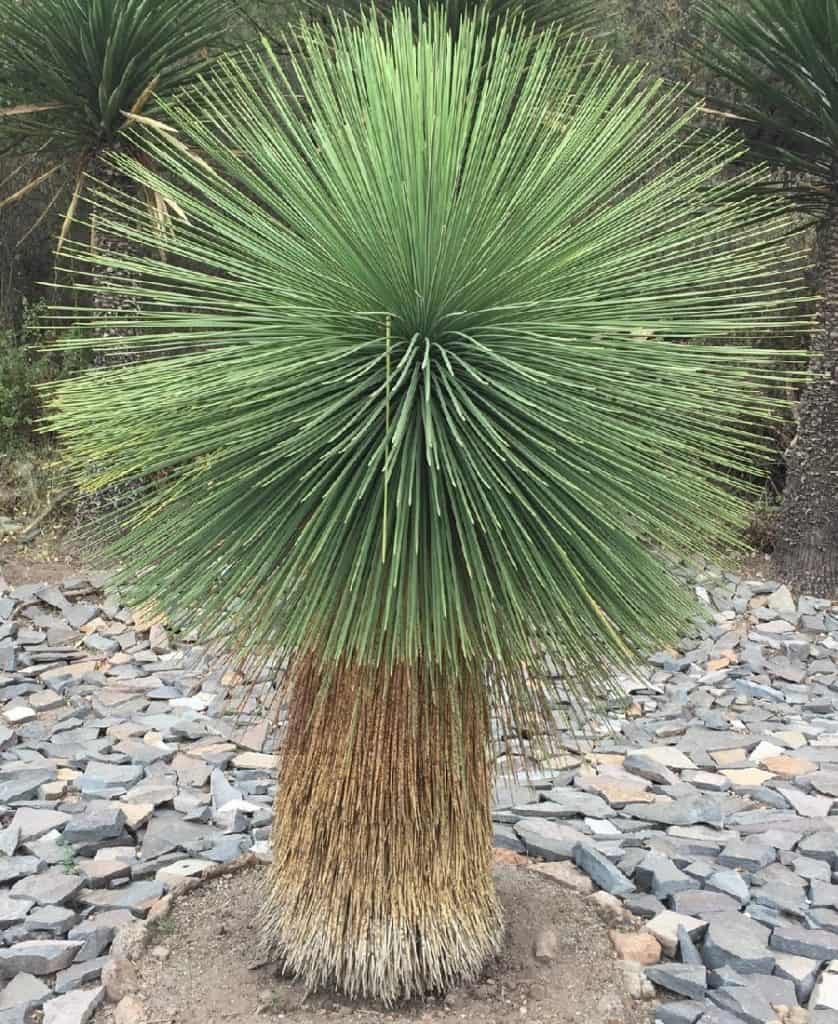
If yuccas could win a beauty pageant, this striking señorita would take the crown! An ultra-glamorous single-stemmed upright with a prominent skirt of dead leaves hugging its tall trunk. But the real showstopper is the bright green crest of incredibly thin, square-shaped leaves at the top. When it flowers, stalks of white blossoms rise regally above the funky foliage. Yucca queretaroensis is hands-down the most gorgeous gal of the bunch!
Yucca recurvifolia (Curve-leaf Yucca)
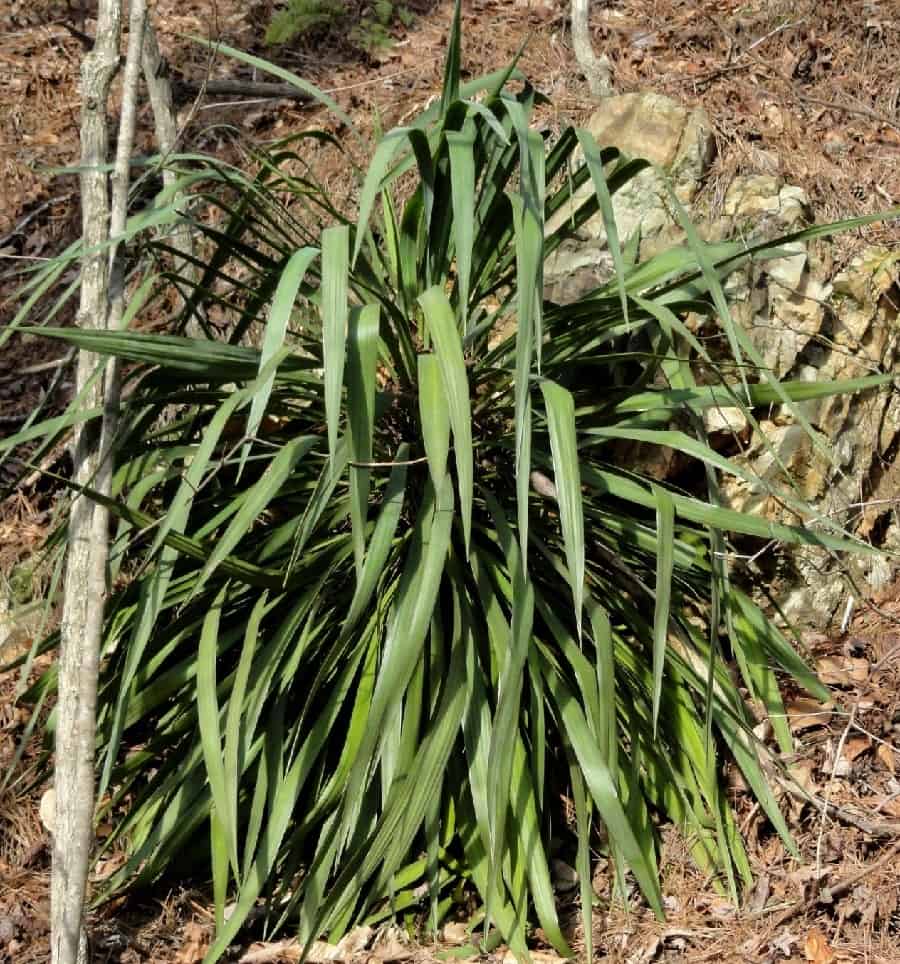
Related Post:
Yucca pendula: Care and Propagation Guide
Yucca reverchonii (San Angelo Yucca)
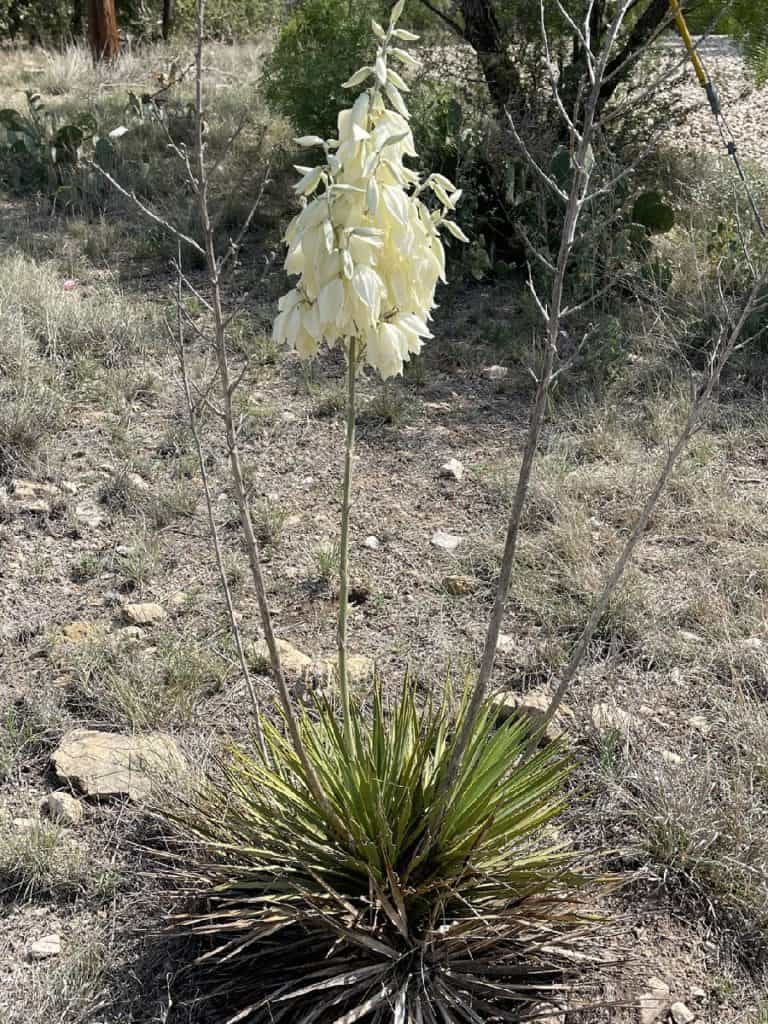
Yucca rigida (Rigid Blue Yucca)
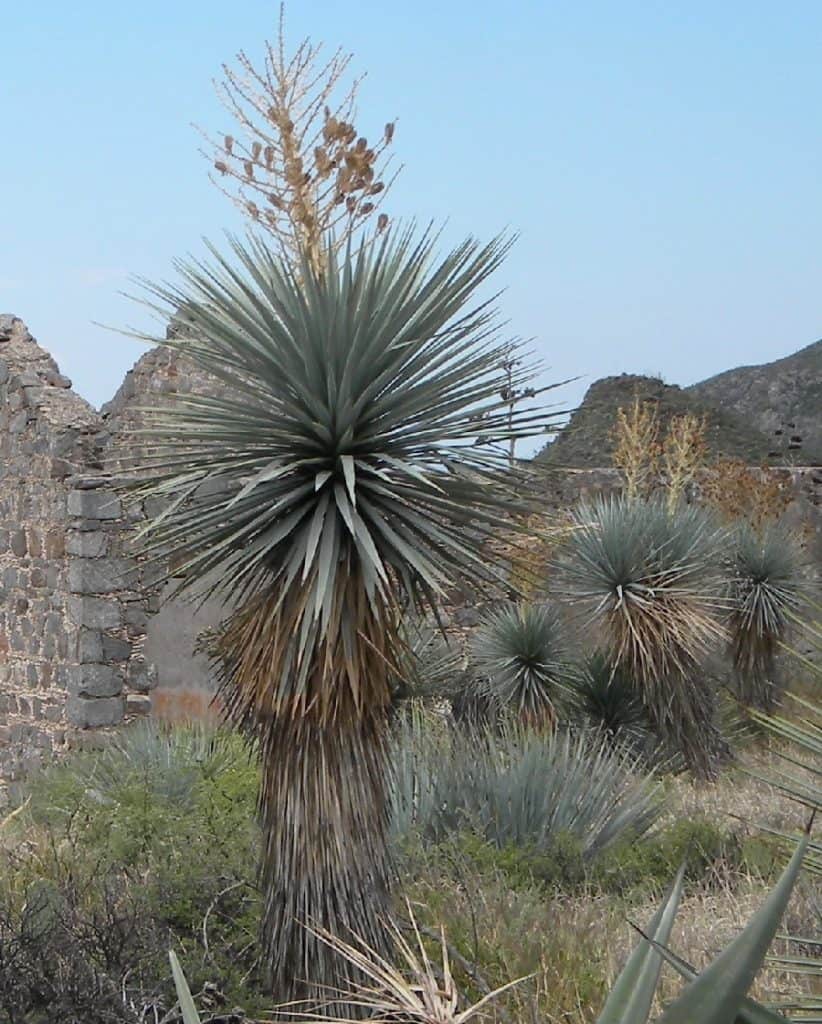
Yucca rostrata (Beaked Yucca)
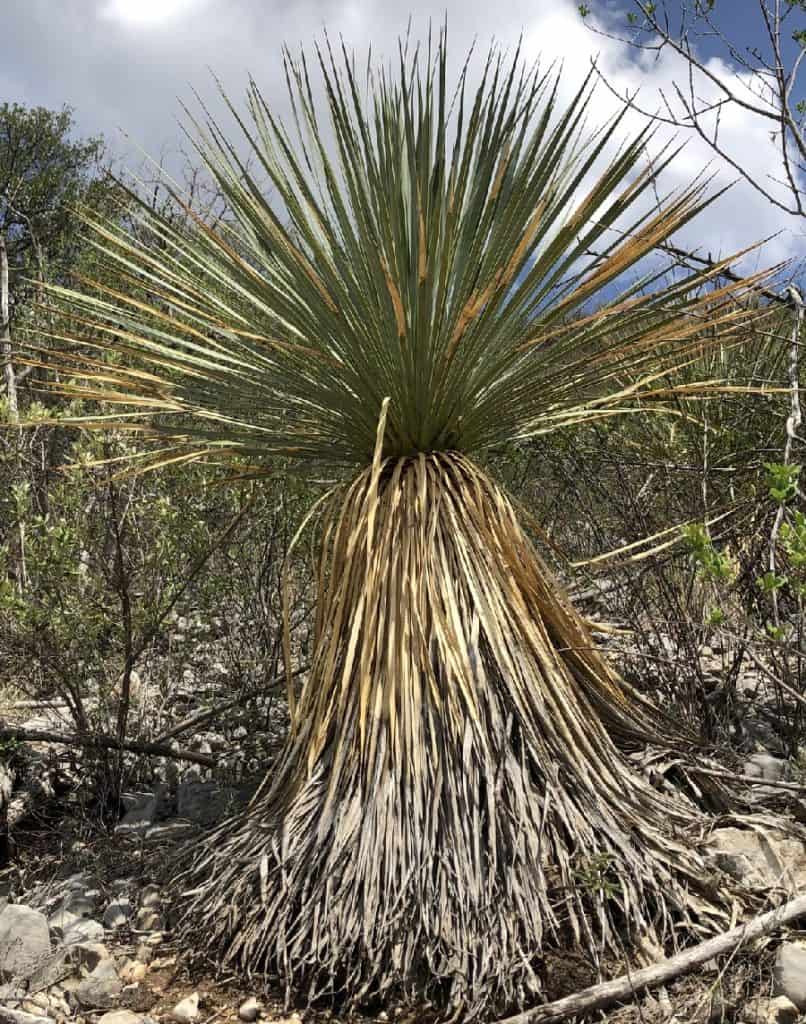
Striking a super statuesque pose, this tree-like yucca is basically a plant supermodel working the runway. The upright stems sport a shimmering blue-gray topknot of slim, elegant leaves minutely toothed with translucent yellow edges. But the real head-turner is the large clusters of white bloomsgrabbing the spotlight on vibrant yellow-orange colored stalks. Yucca rostrata is undoubtedly the most haute couture of the yucca world!
Yucca rupicola (Twisted-leaf Yucca)
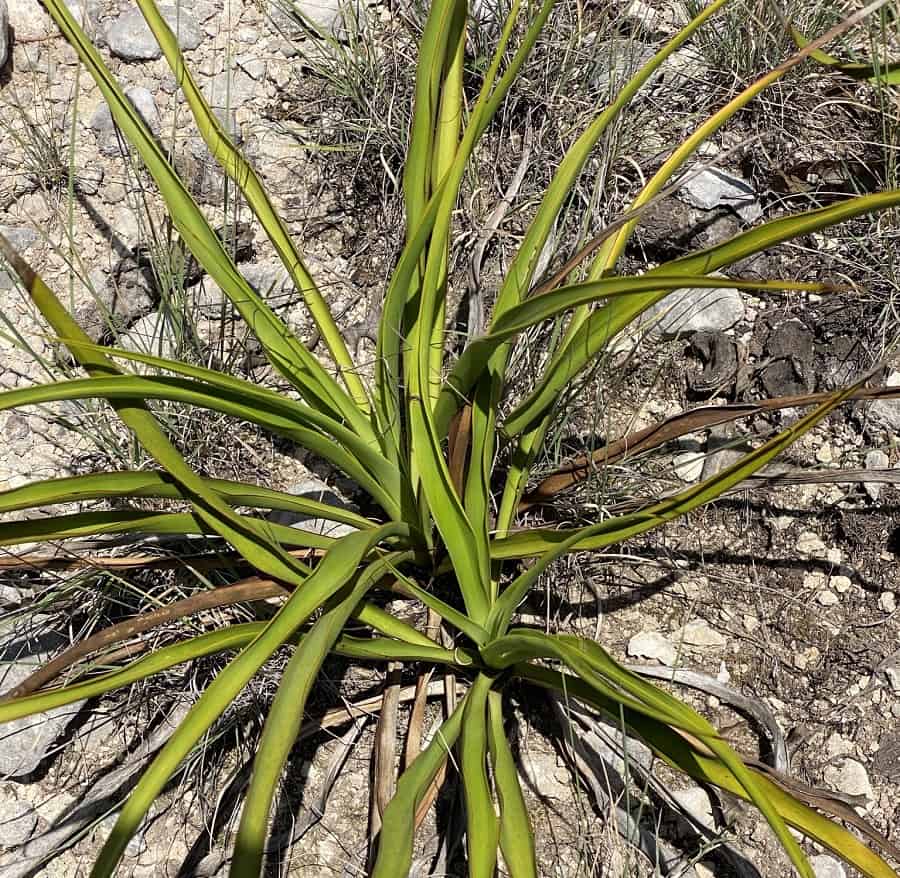
Yucca schidigera (Mojave Yucca)
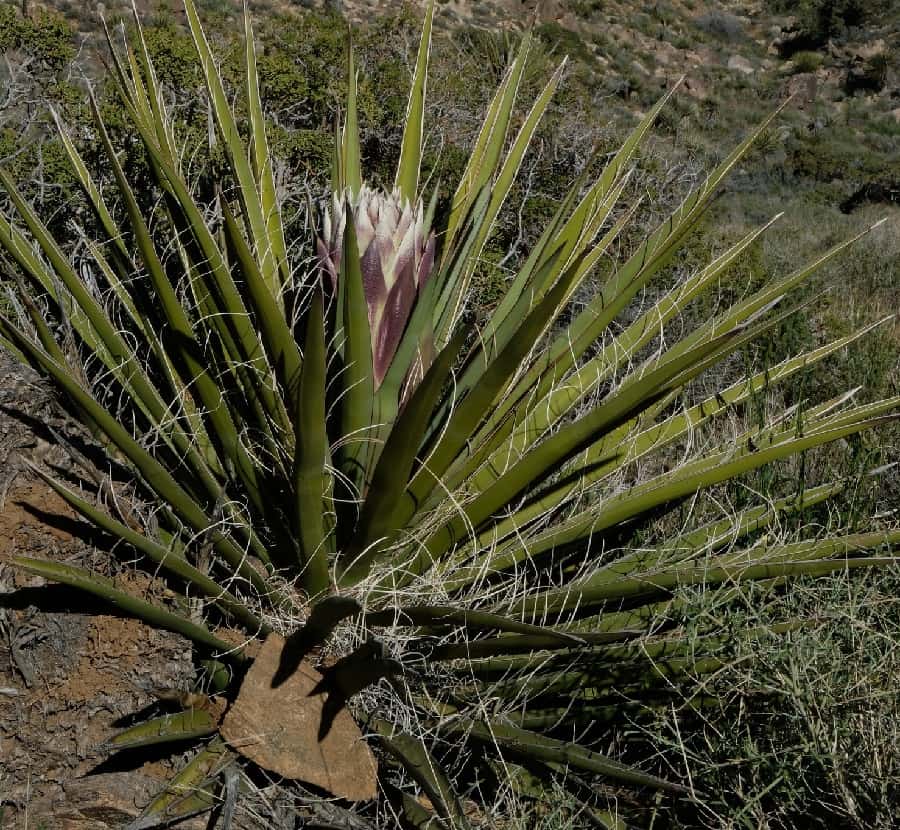
Yucca schottii (Schott’s Yucca)
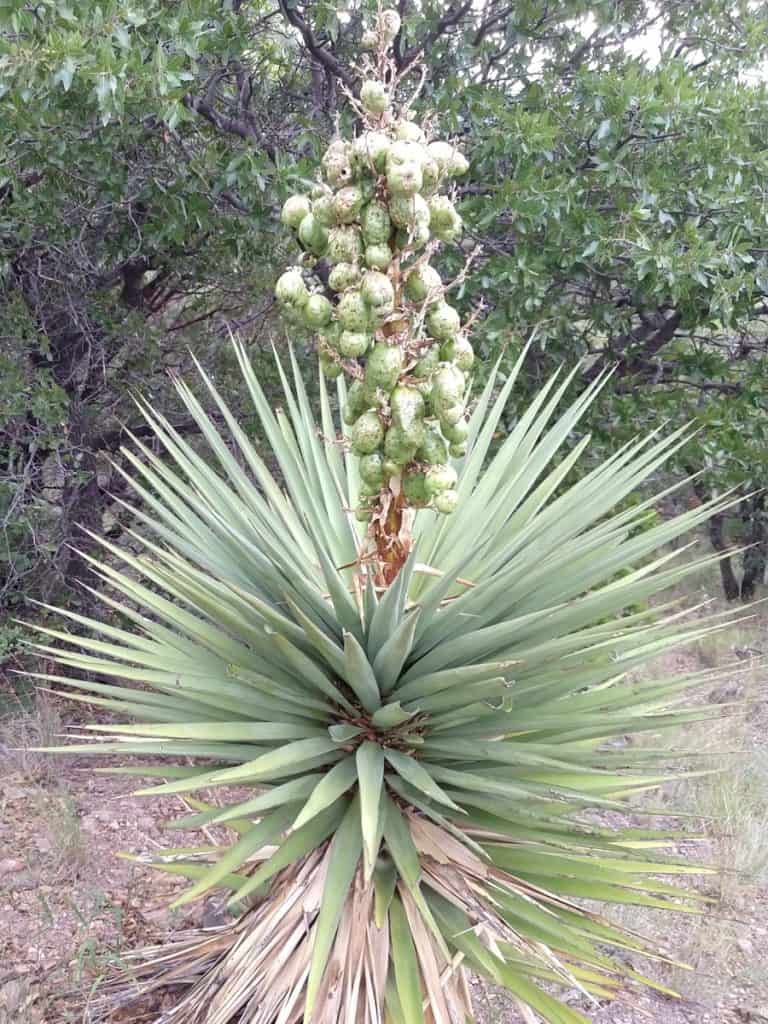
Yucca thompsoniana (Thompson’s Yucca)
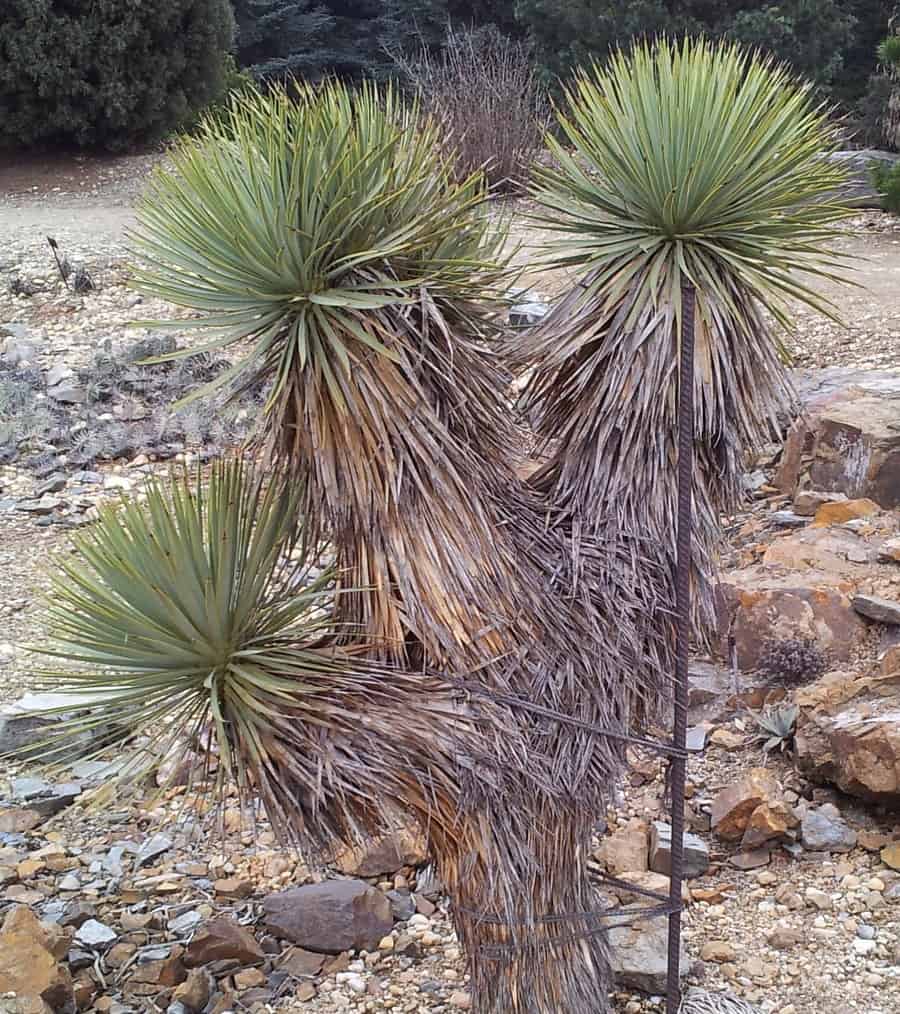
Yucca torreyi (Torrey’s Yucca)
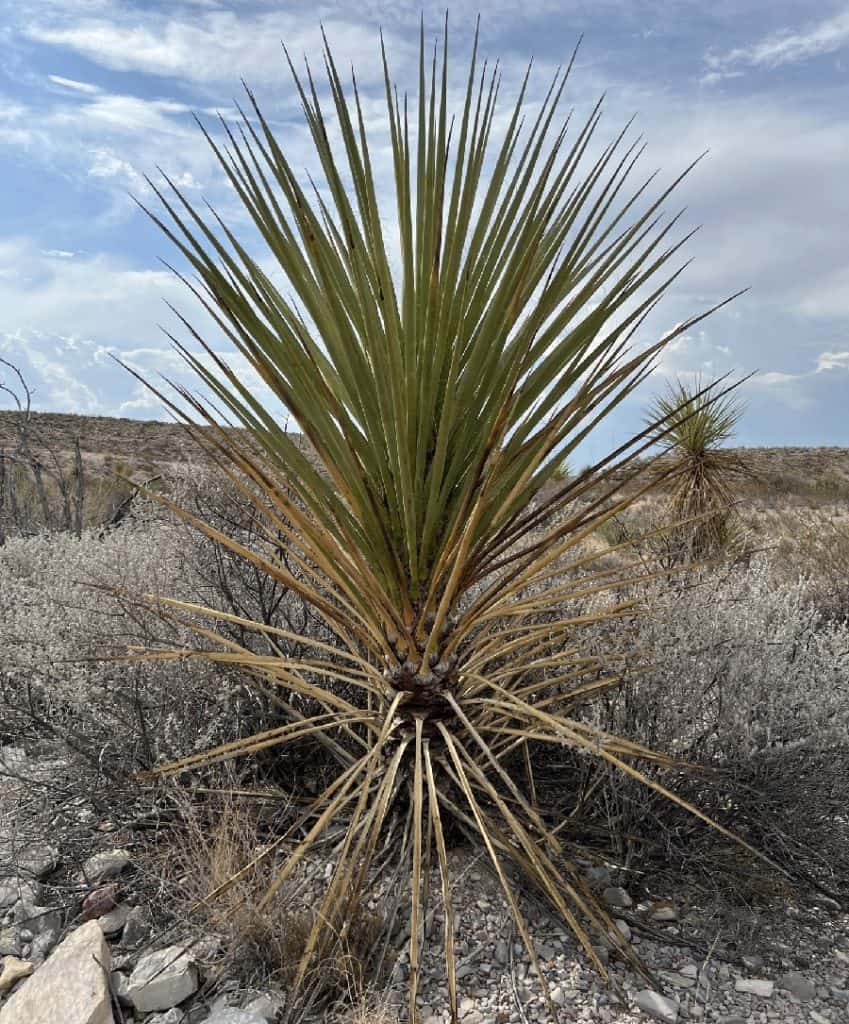
Yucca treculeana (Spanish Dagger)
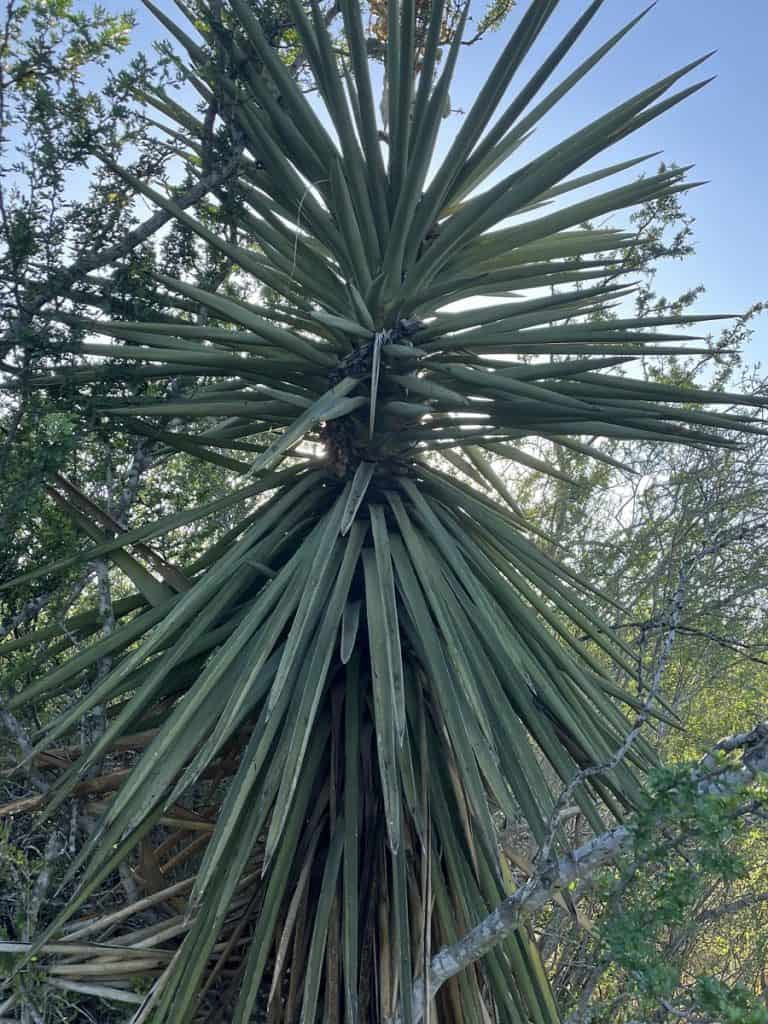
Yucca utahensis (Utah Yucca)
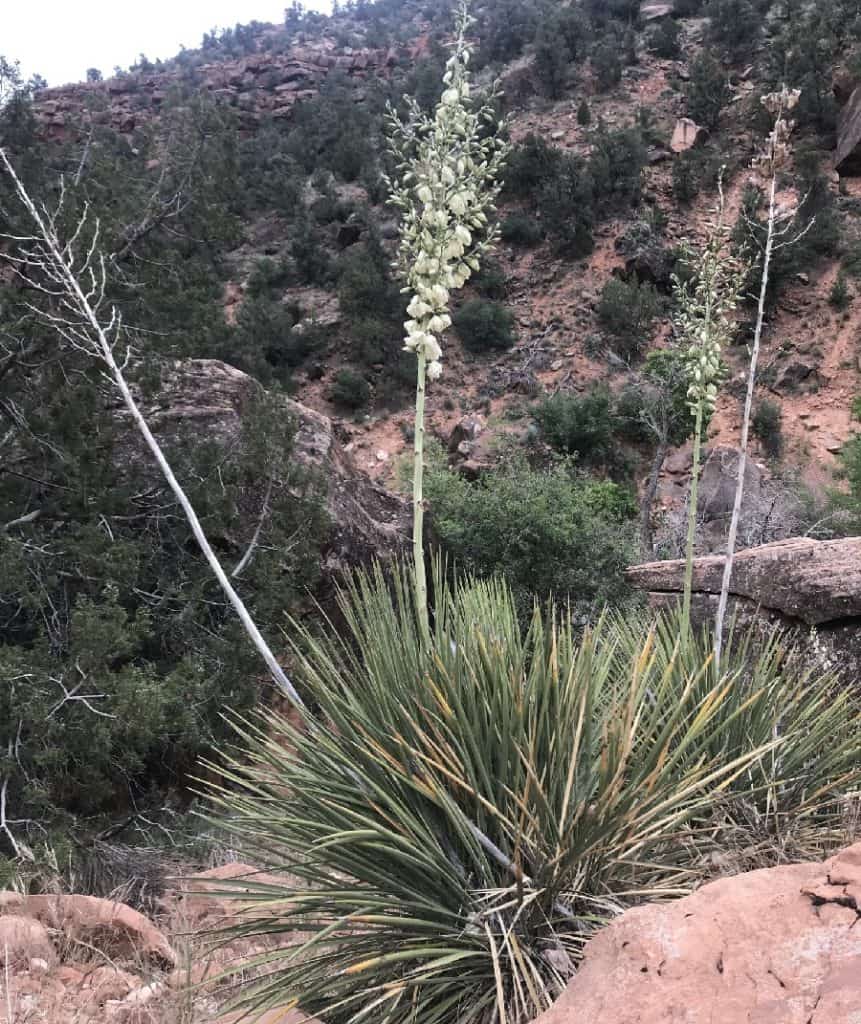
Yucca valida (Datilillo Yucca)
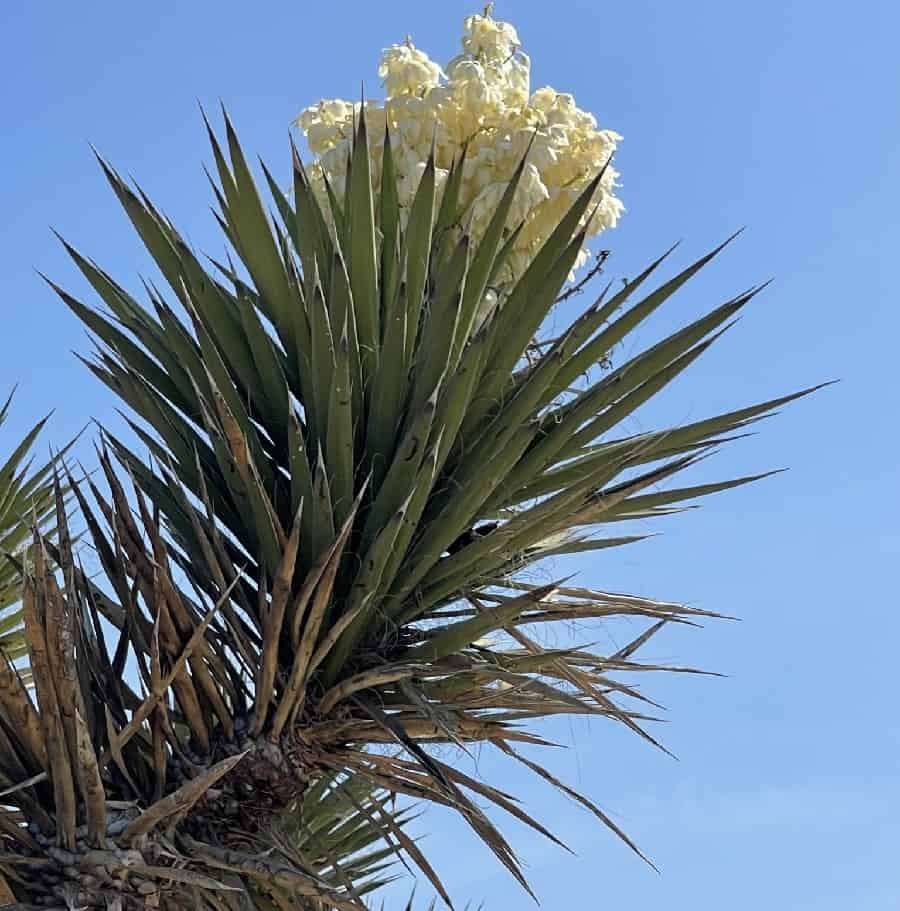
Related Post:
1,000 Types Of Succulents [With Pictures]
Care and Propagation for Yucca Varieties
These sun-worshipping succulents need at least 6-8 hours of direct light daily, so place them in a bright, sunny spot. Let the soil dry out completely between waterings and make sure to use a well-draining potting mix.
Yuccas are pretty low-maintenance but appreciate a balanced liquid fertilizer in spring. Most varieties are freezing tolerant down to 20°F, but bring them indoors if temps dip lower.
You can easily propagate yuccas from seed or stem cuttings. Allow cut stems to dry for a few days before planting in fresh potting mix. Within a few months, you’ll have new baby yucca pups to share!
